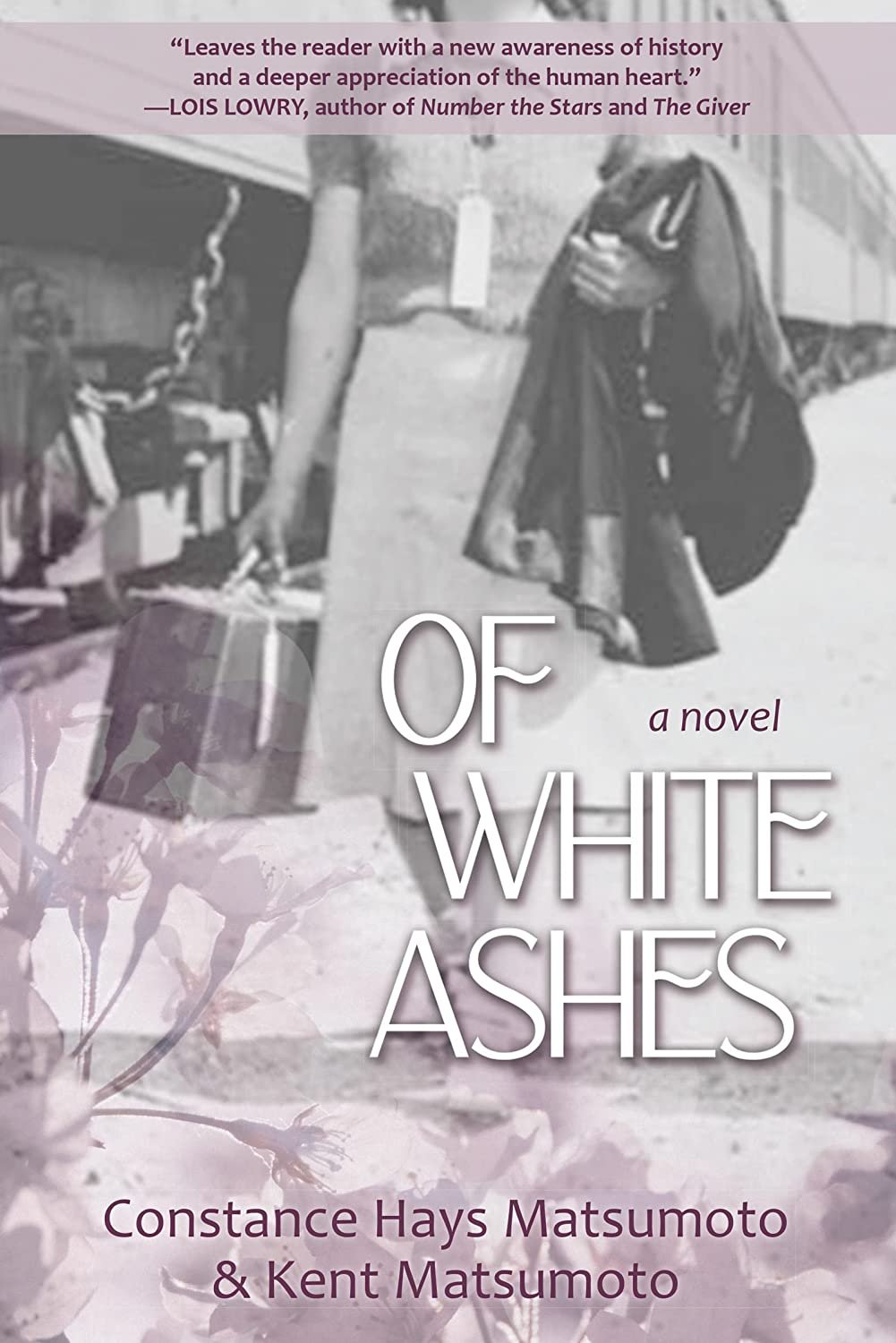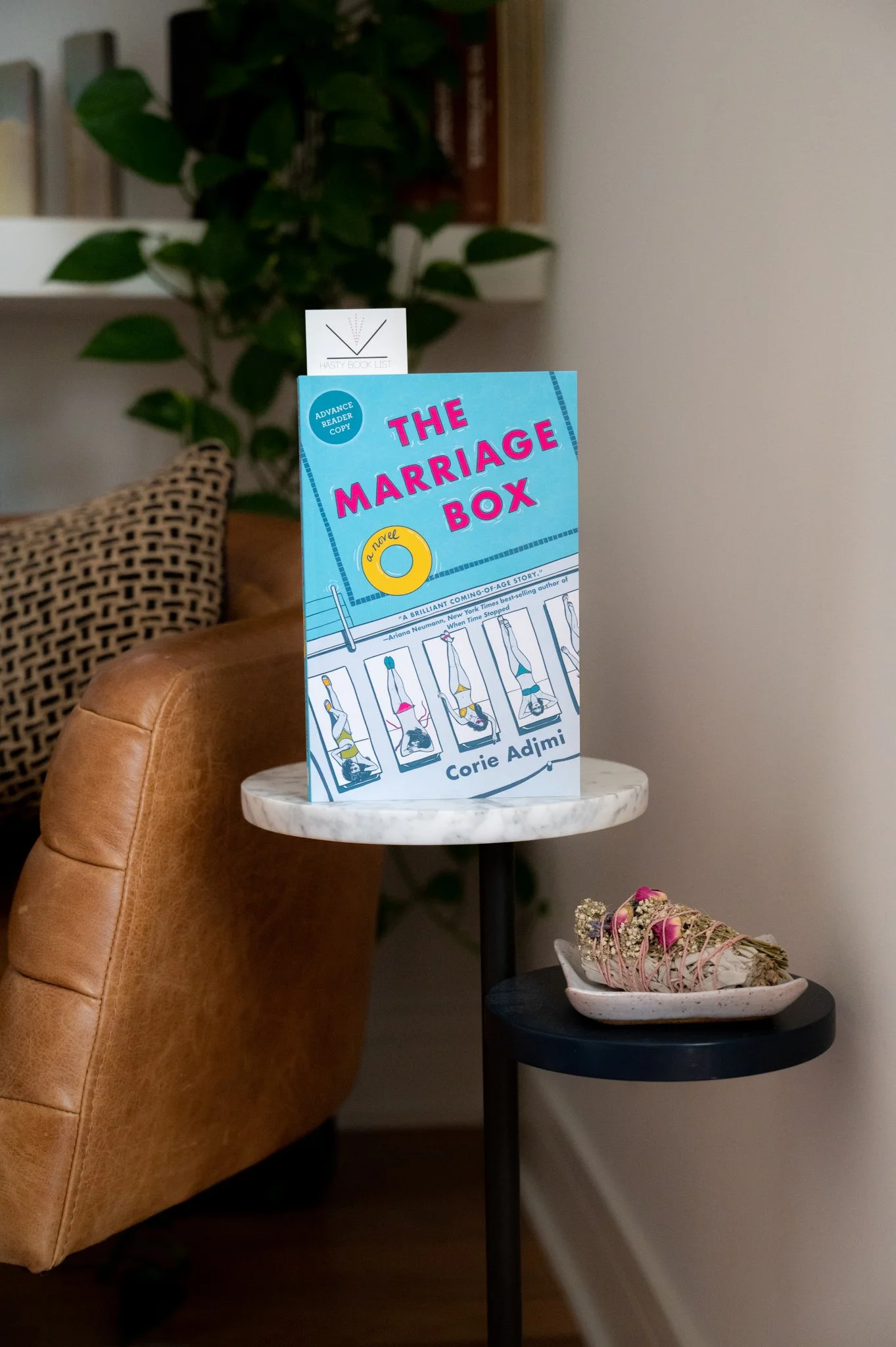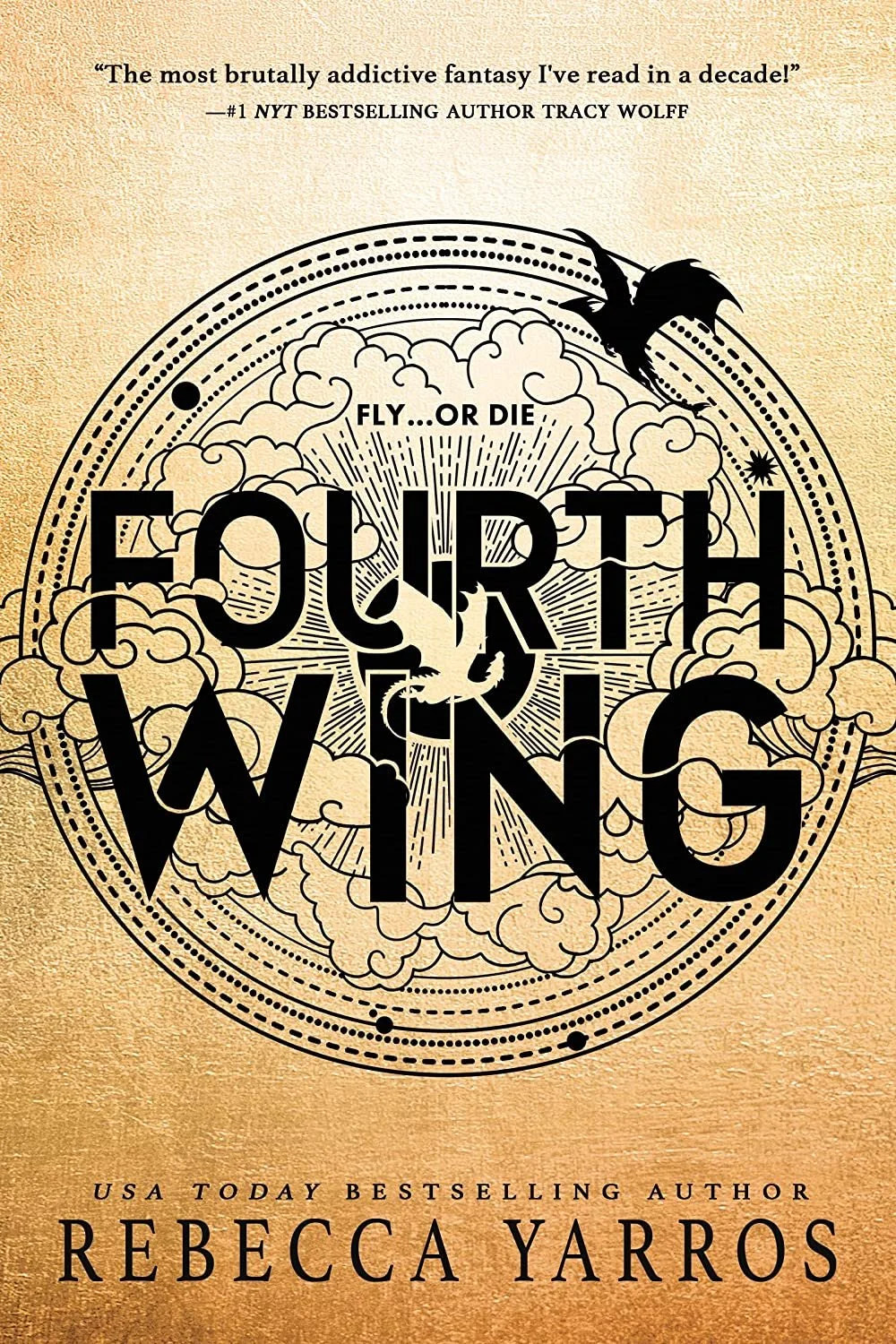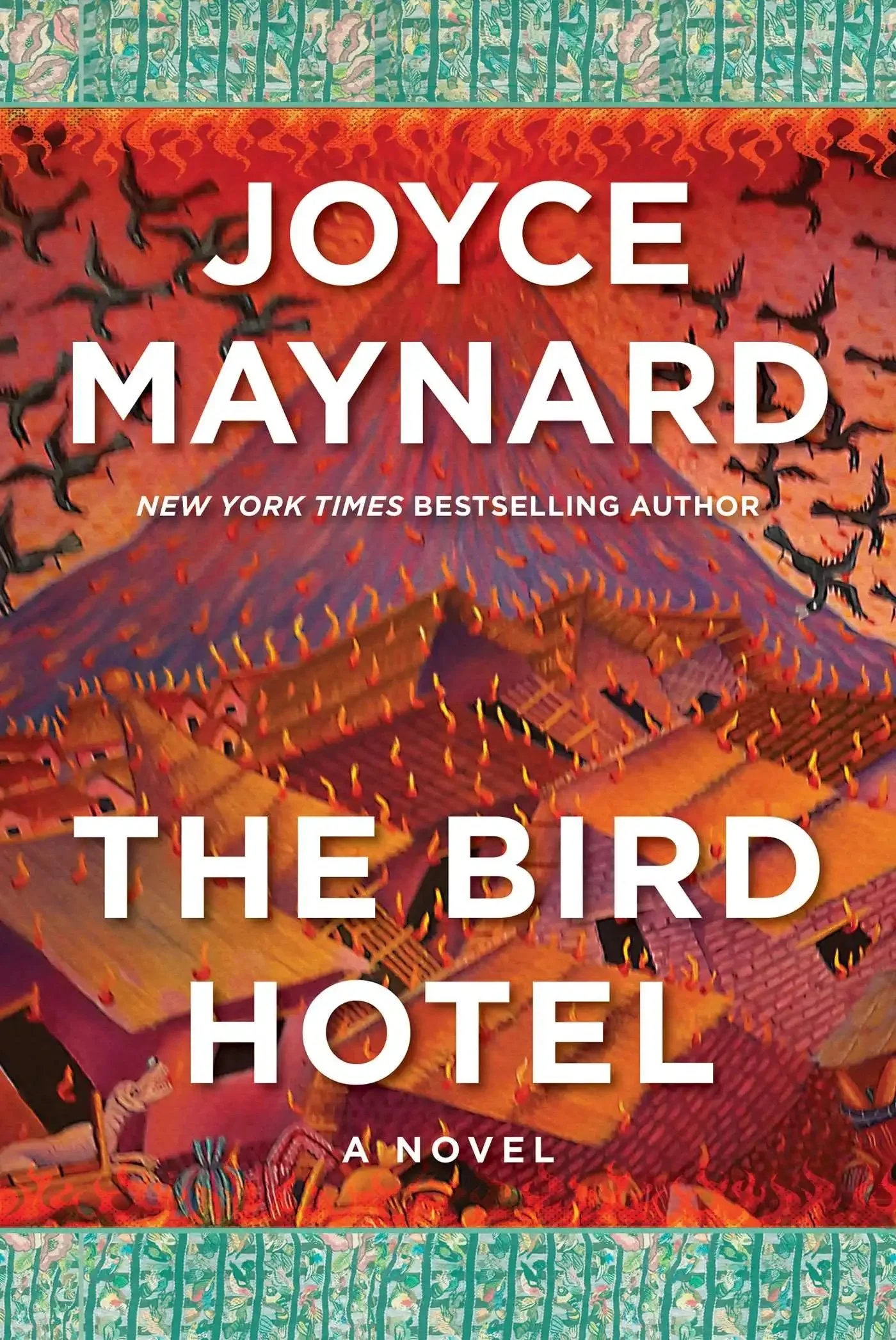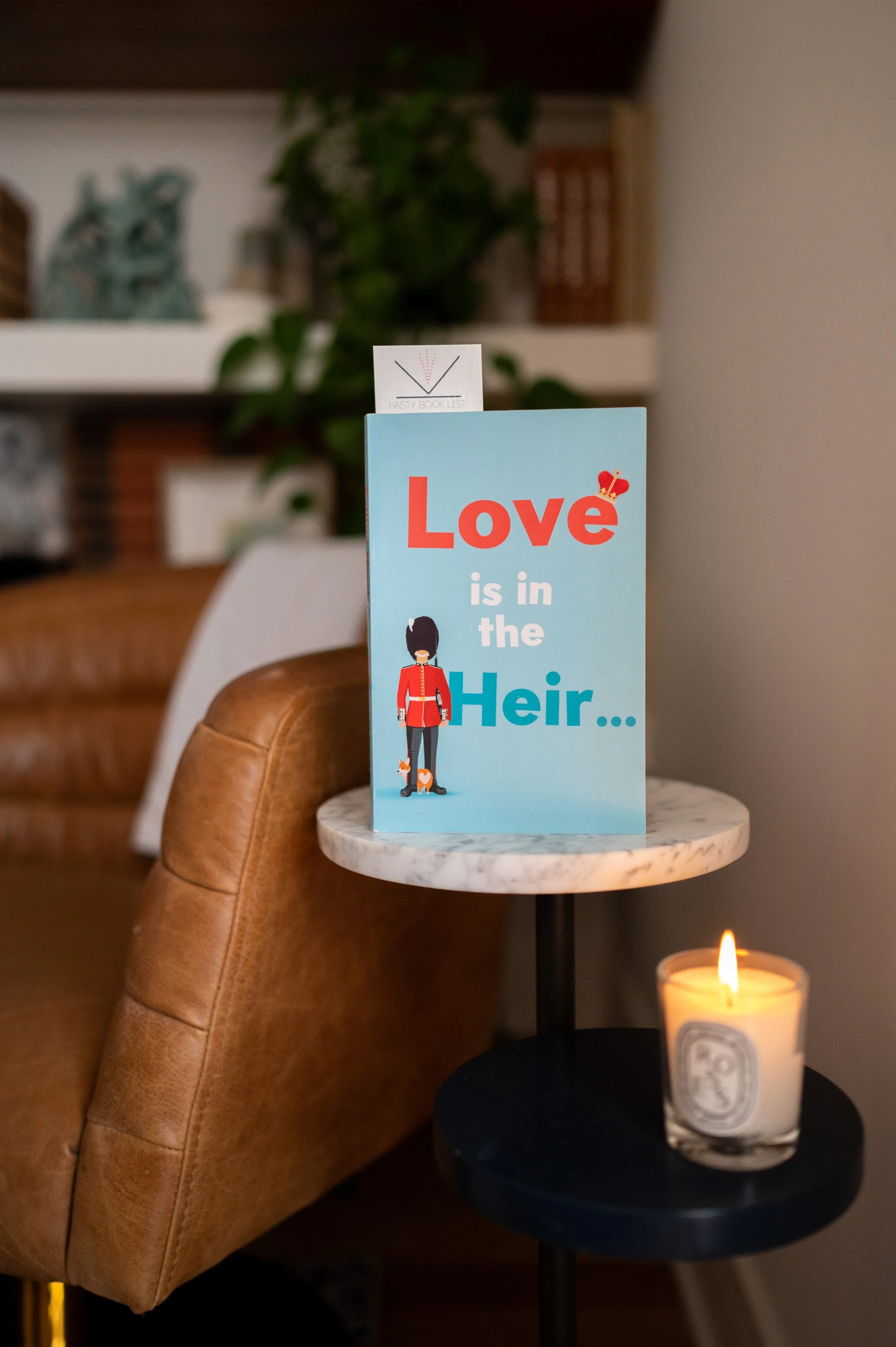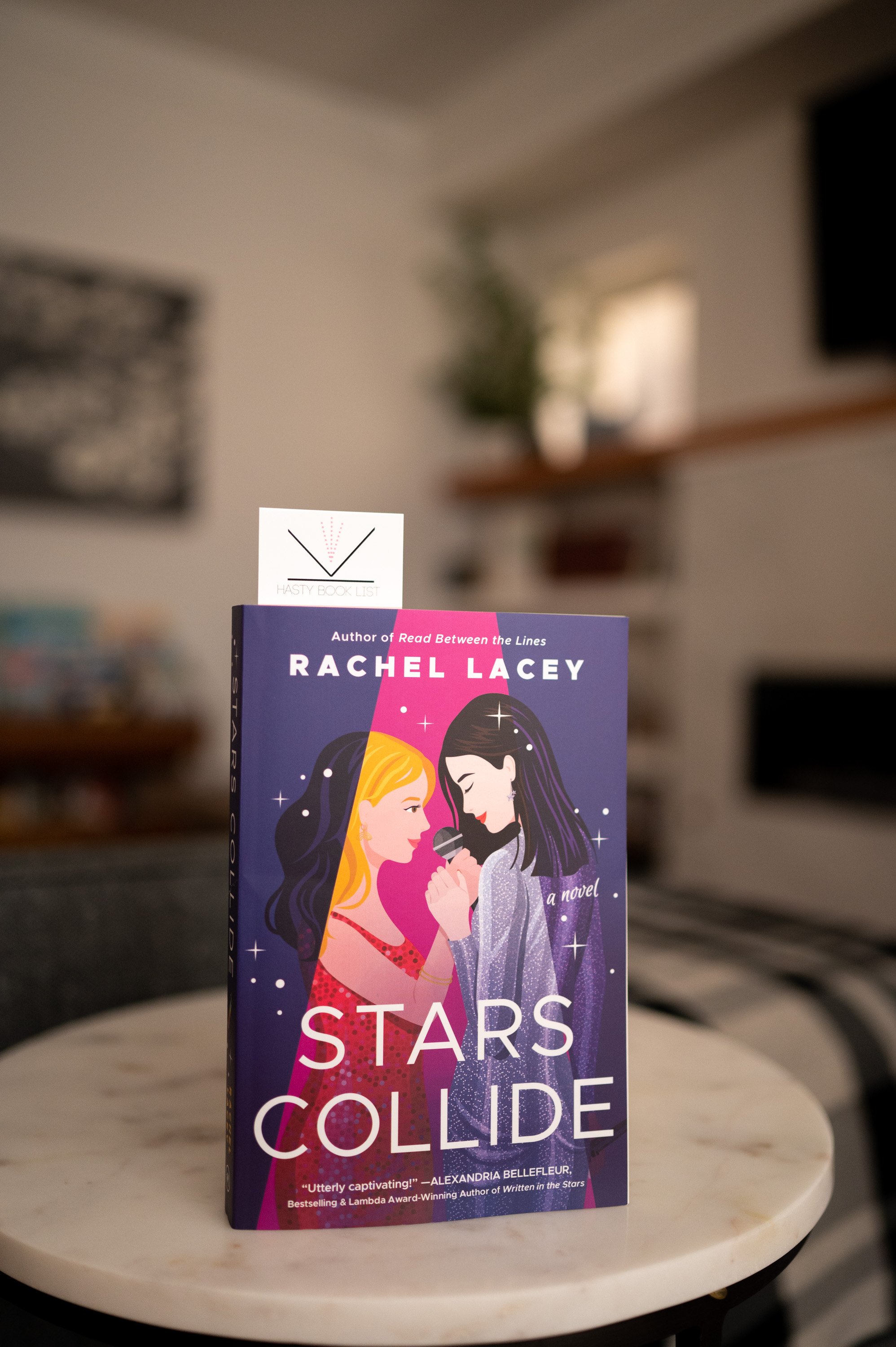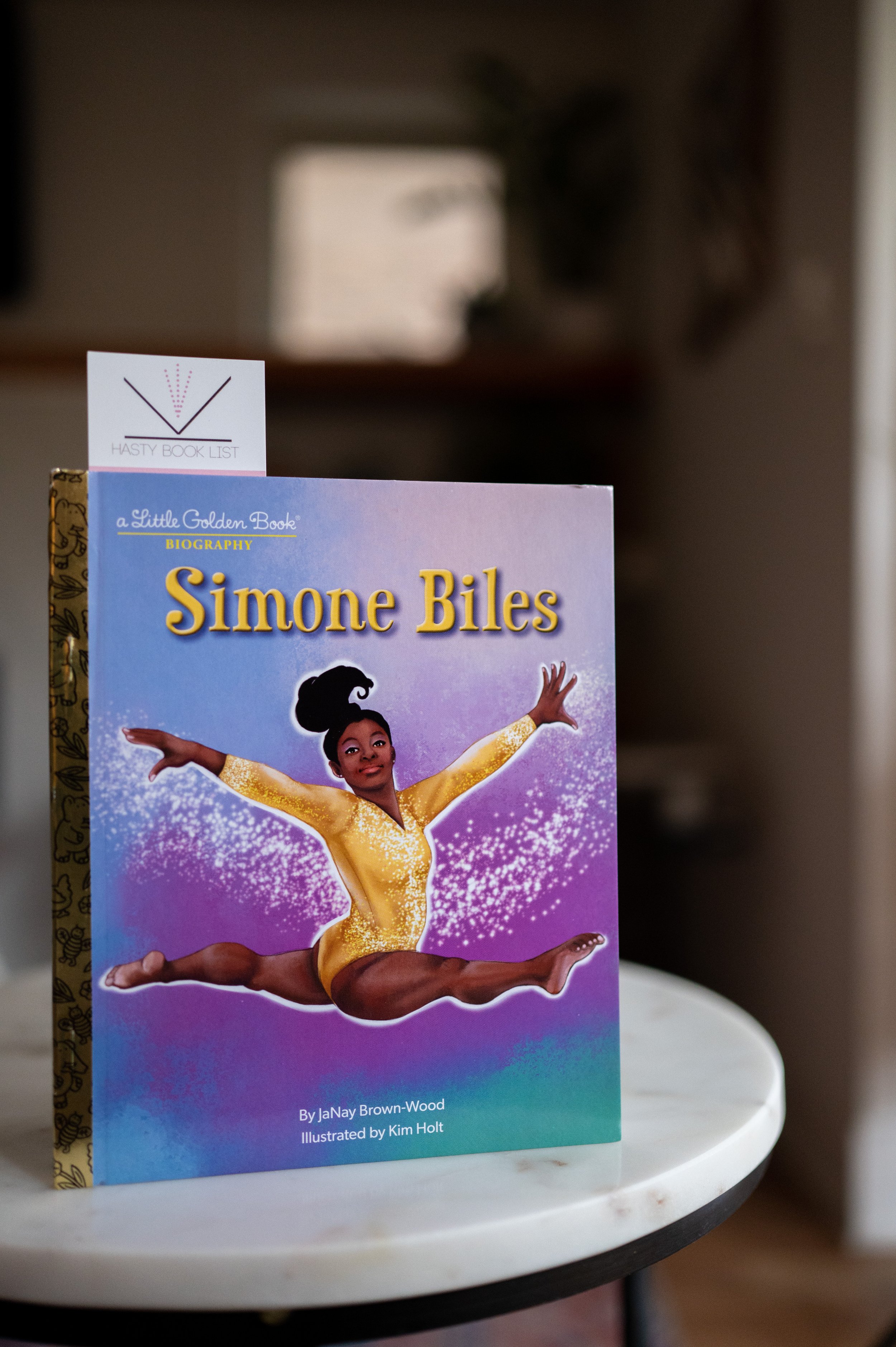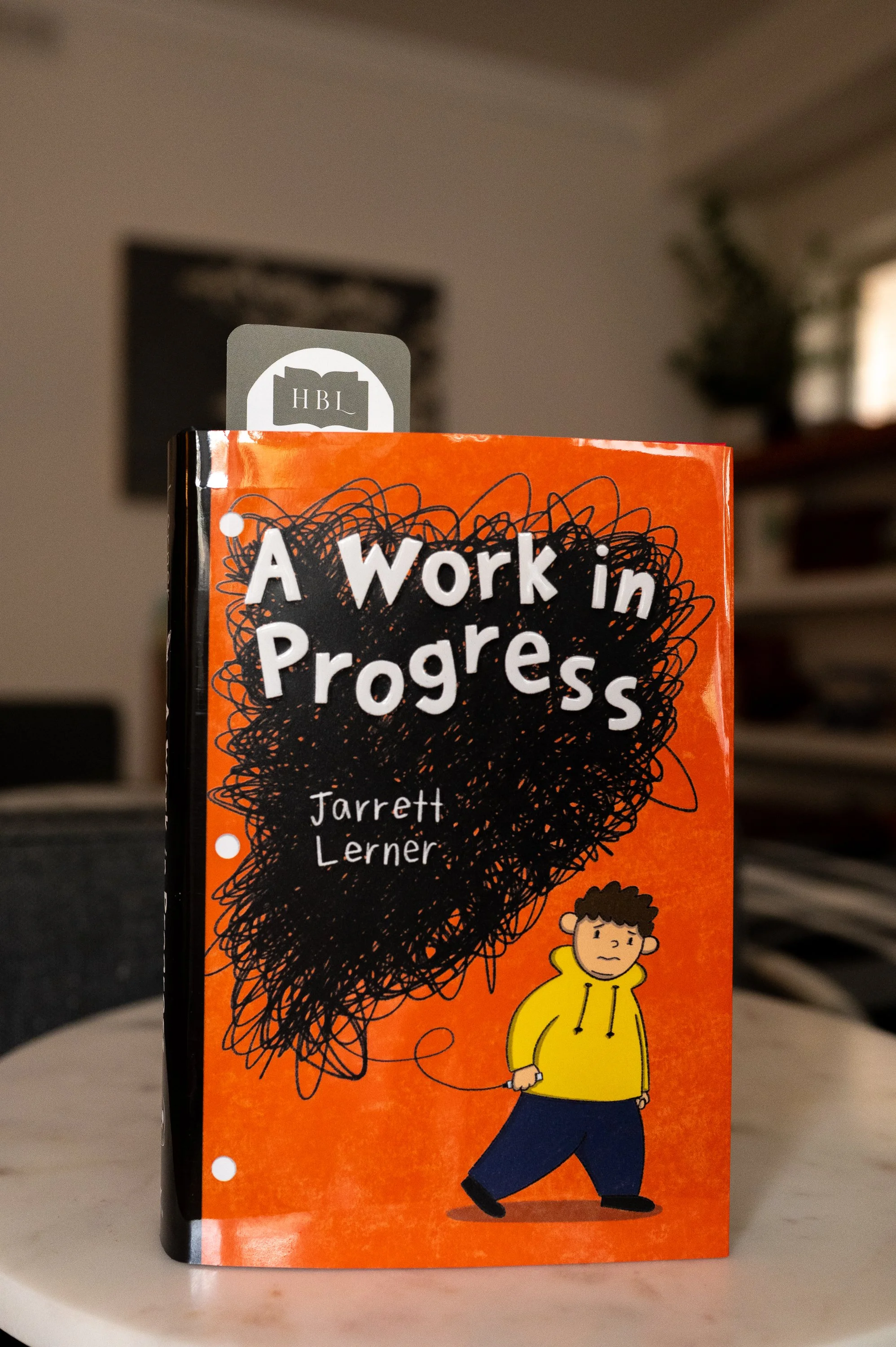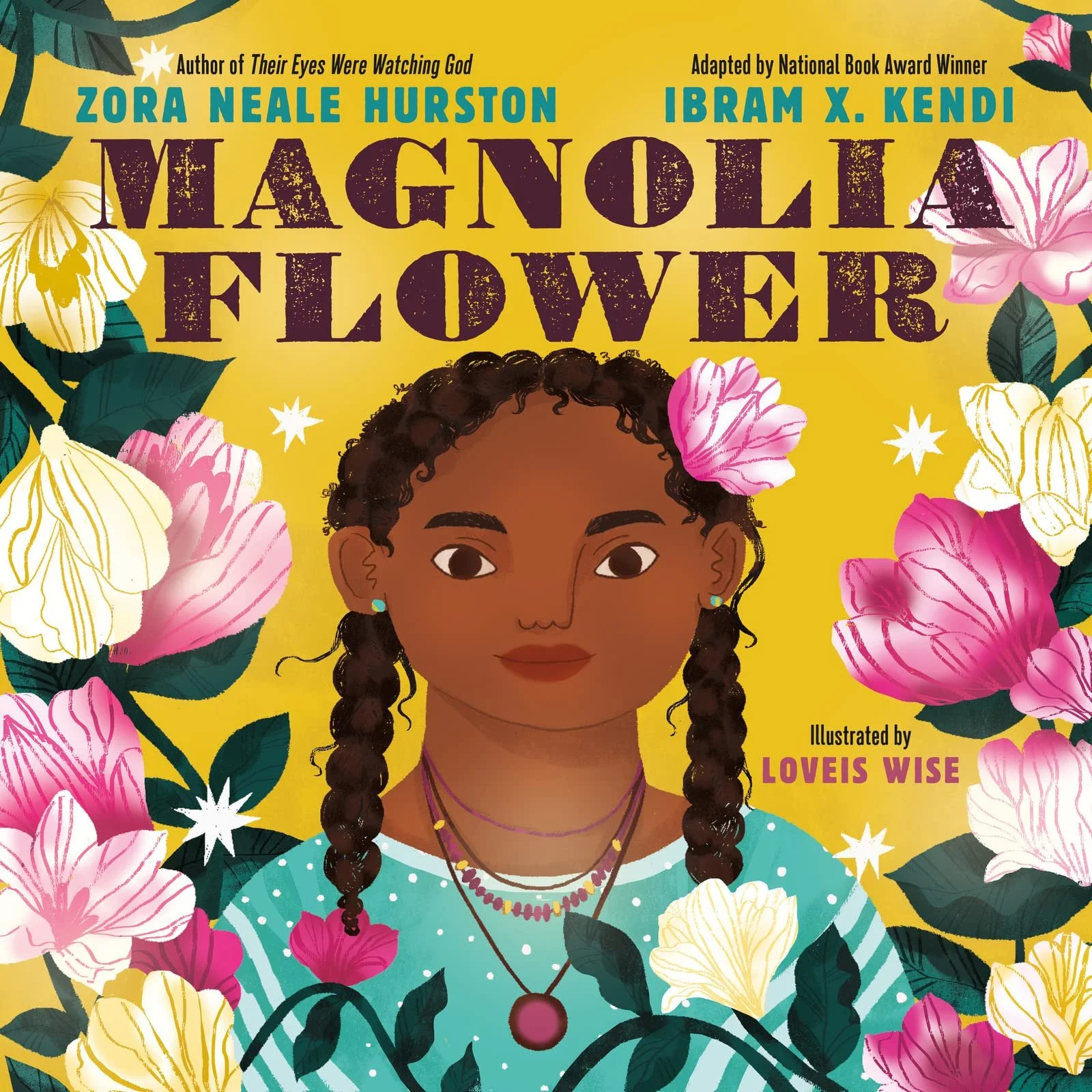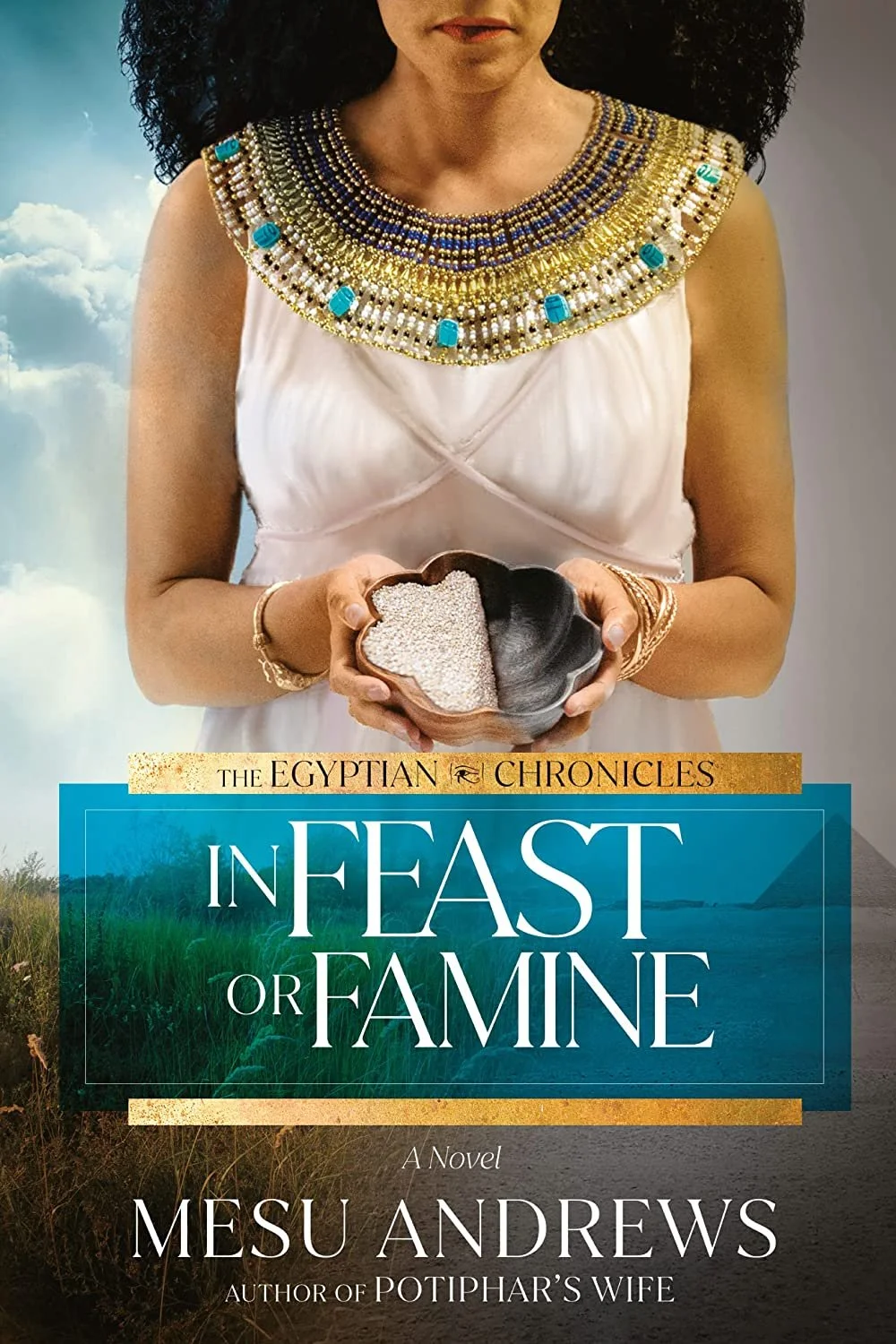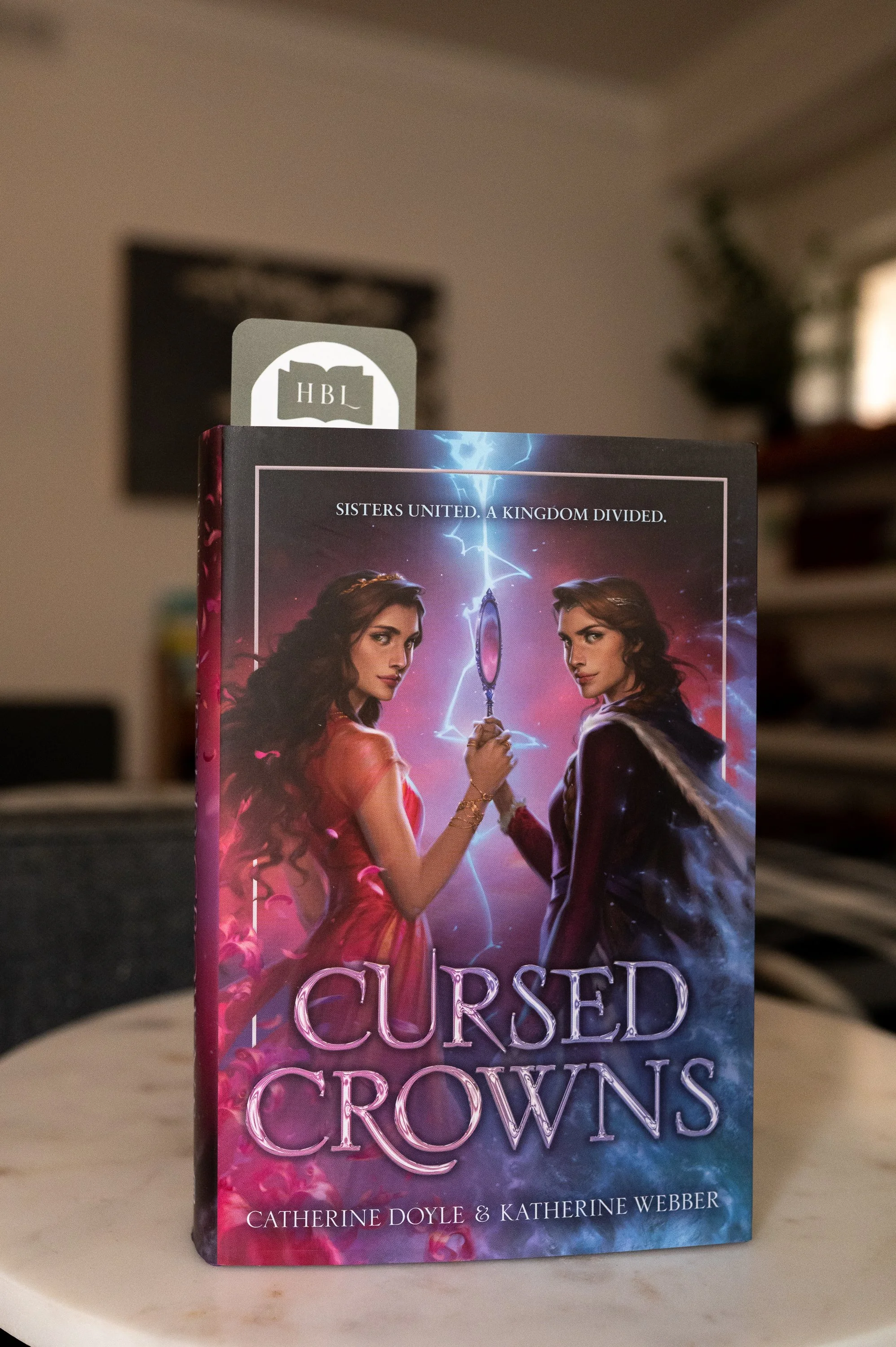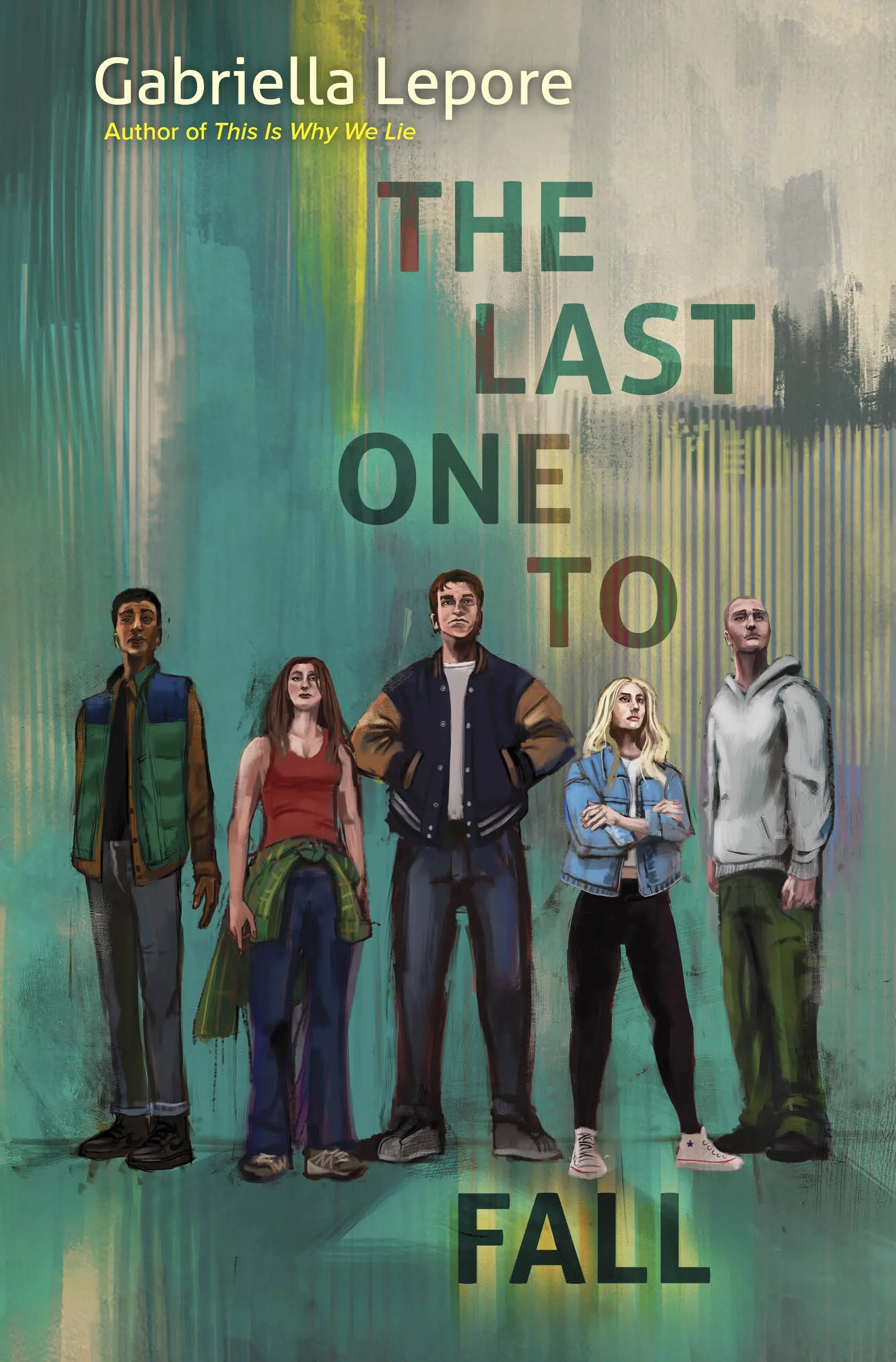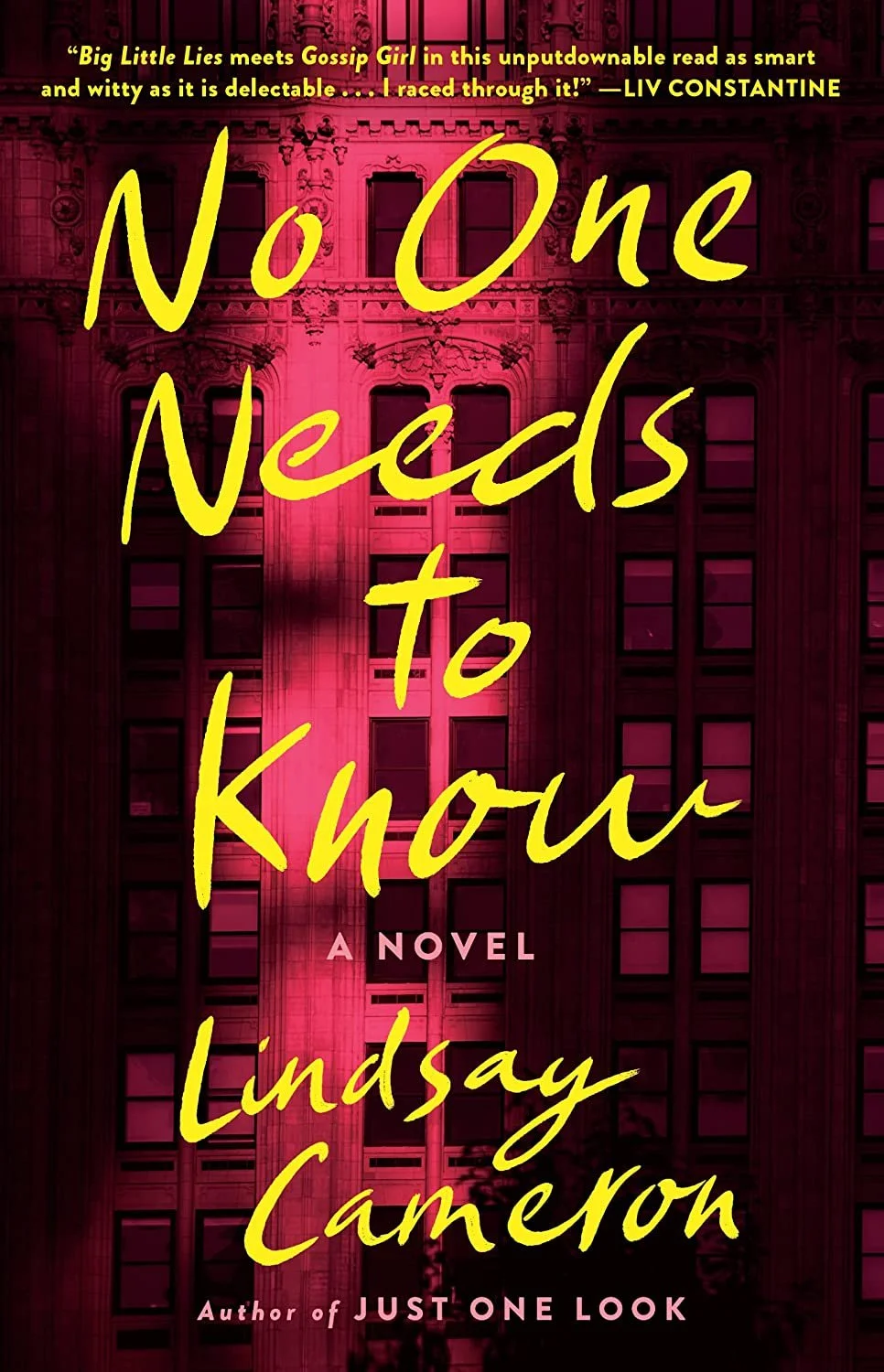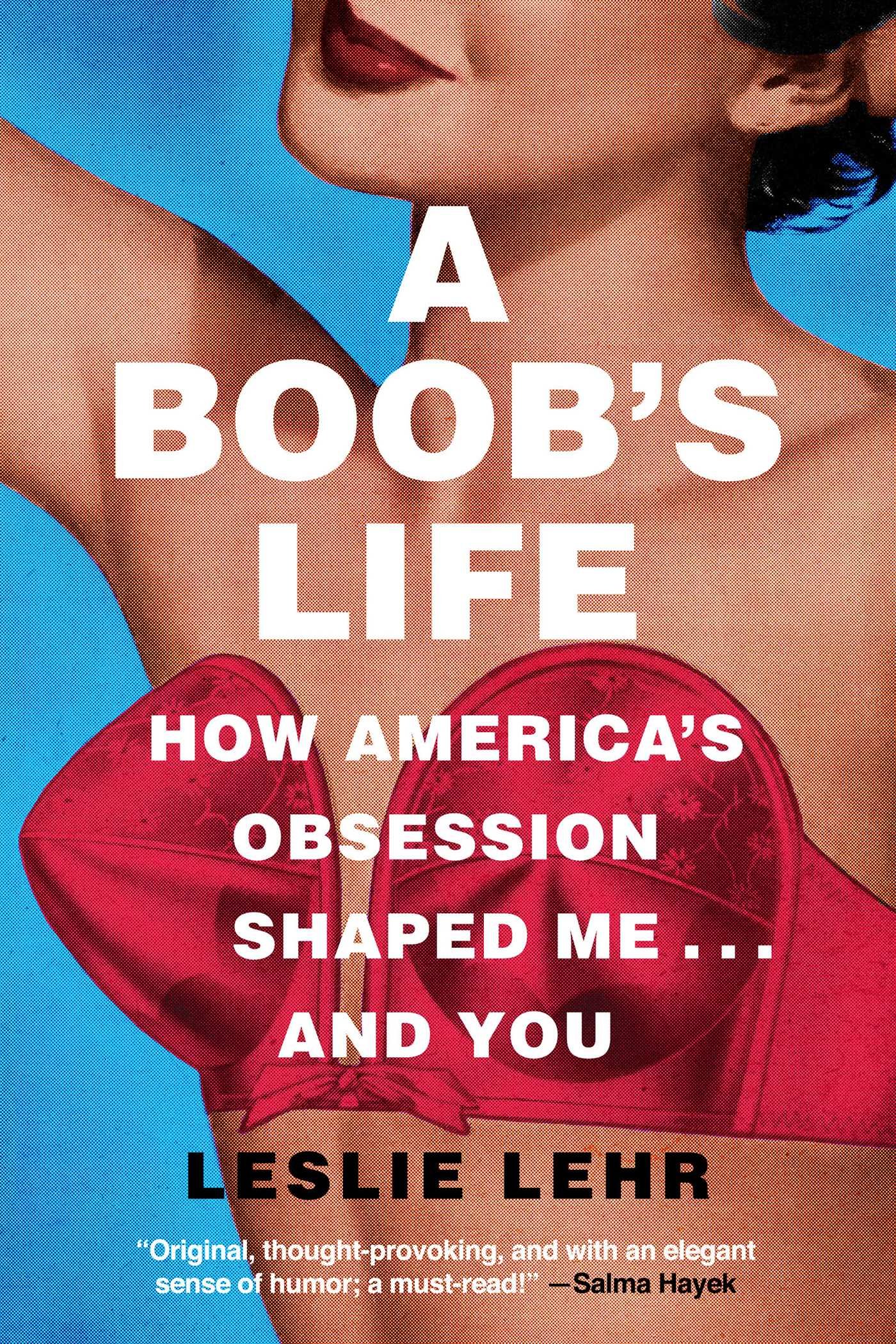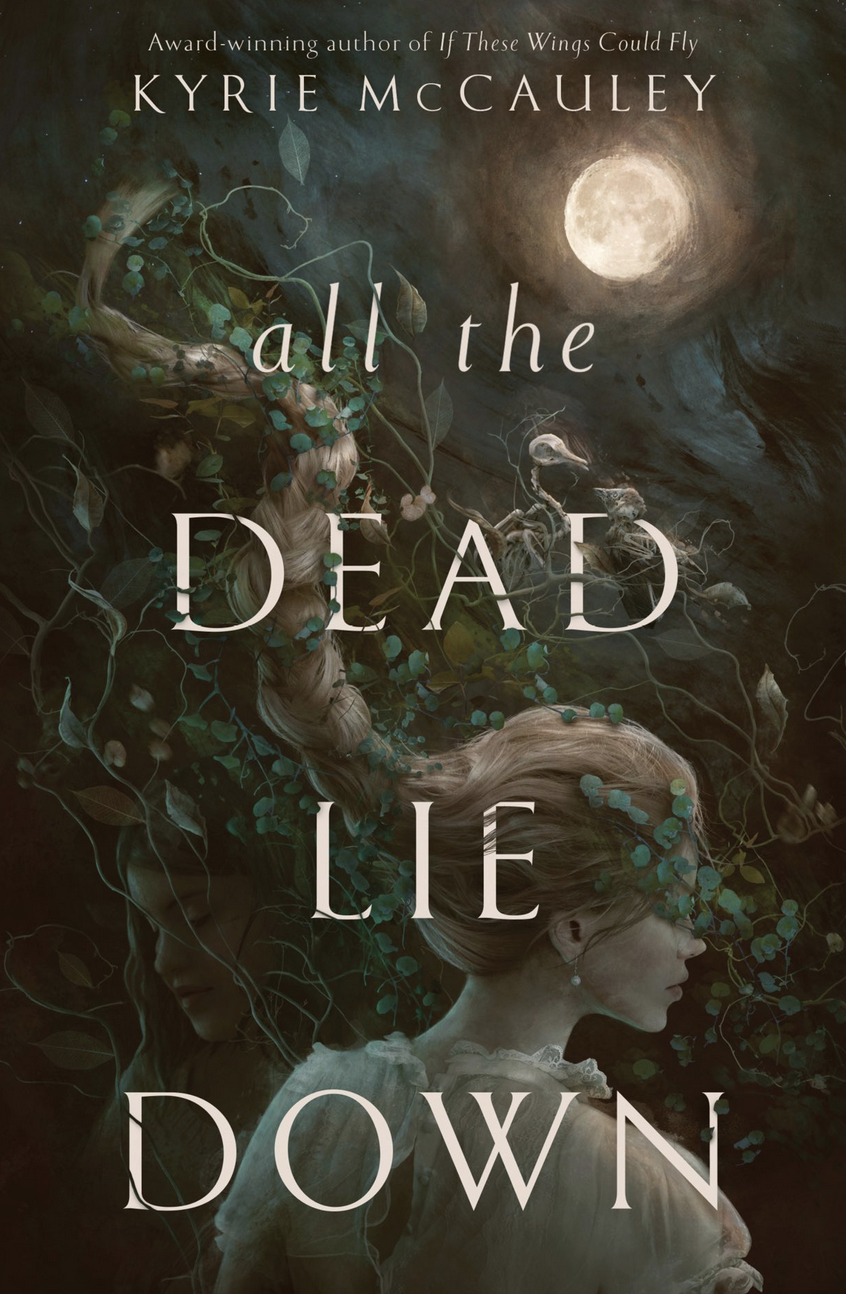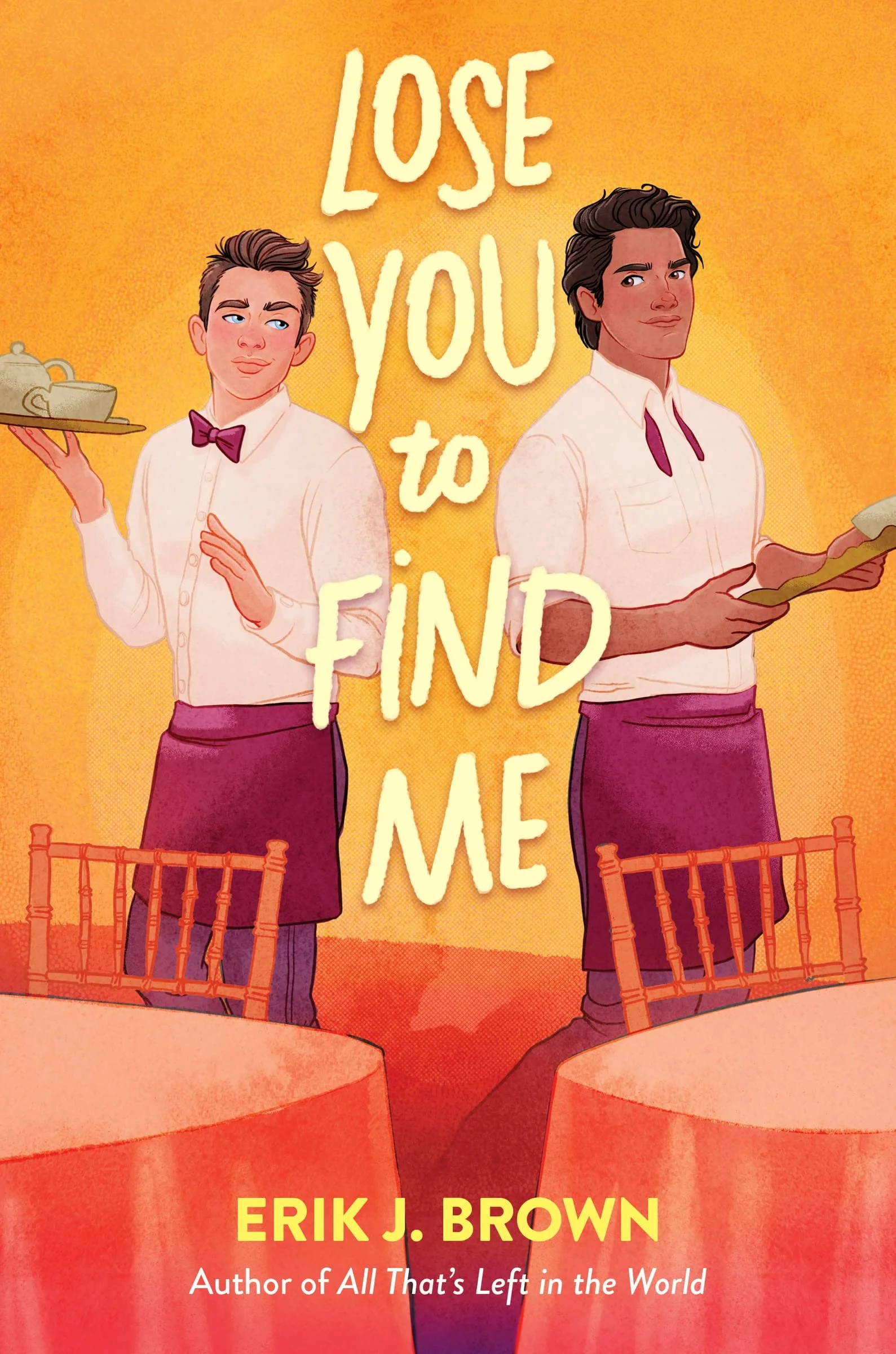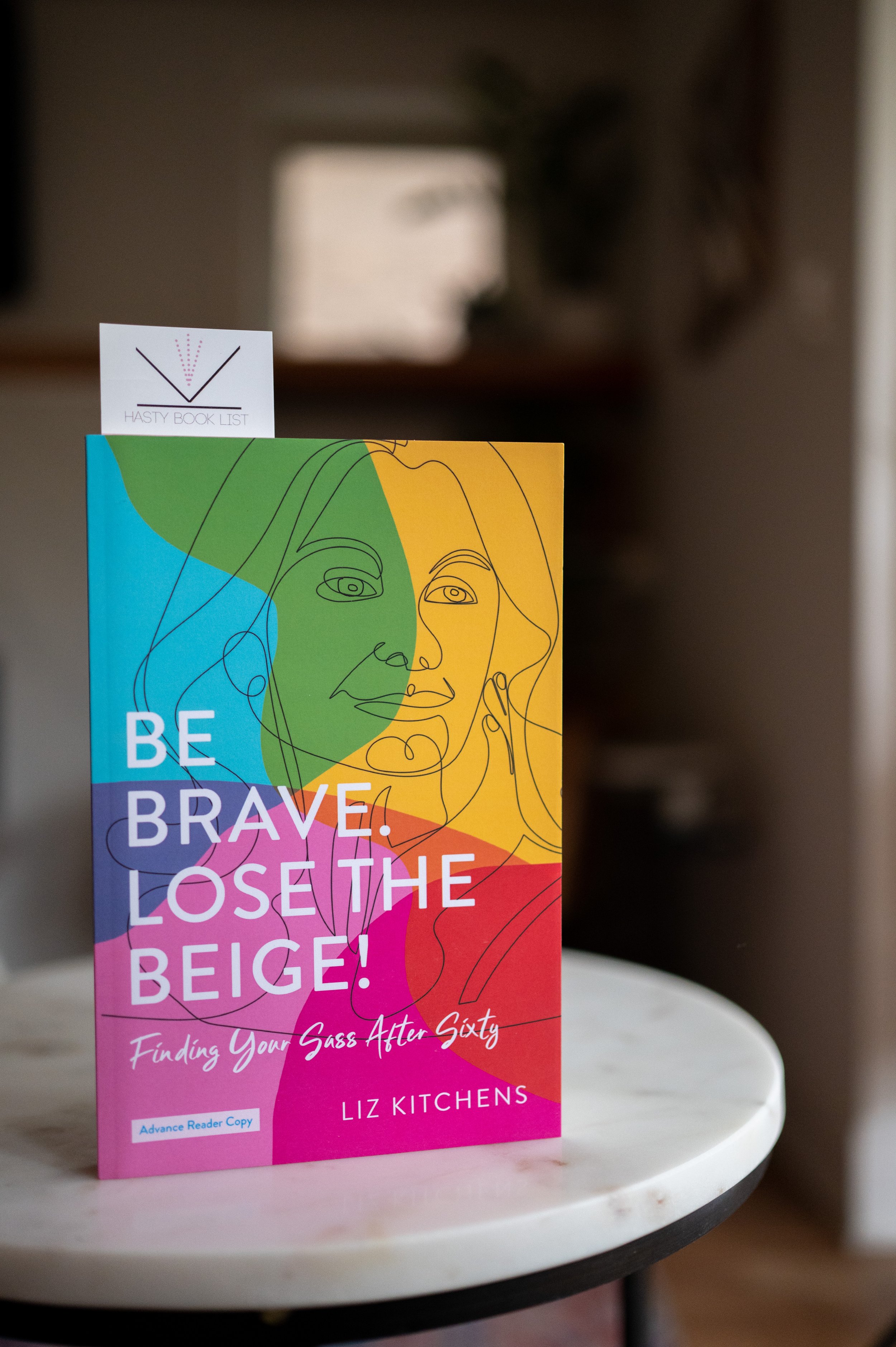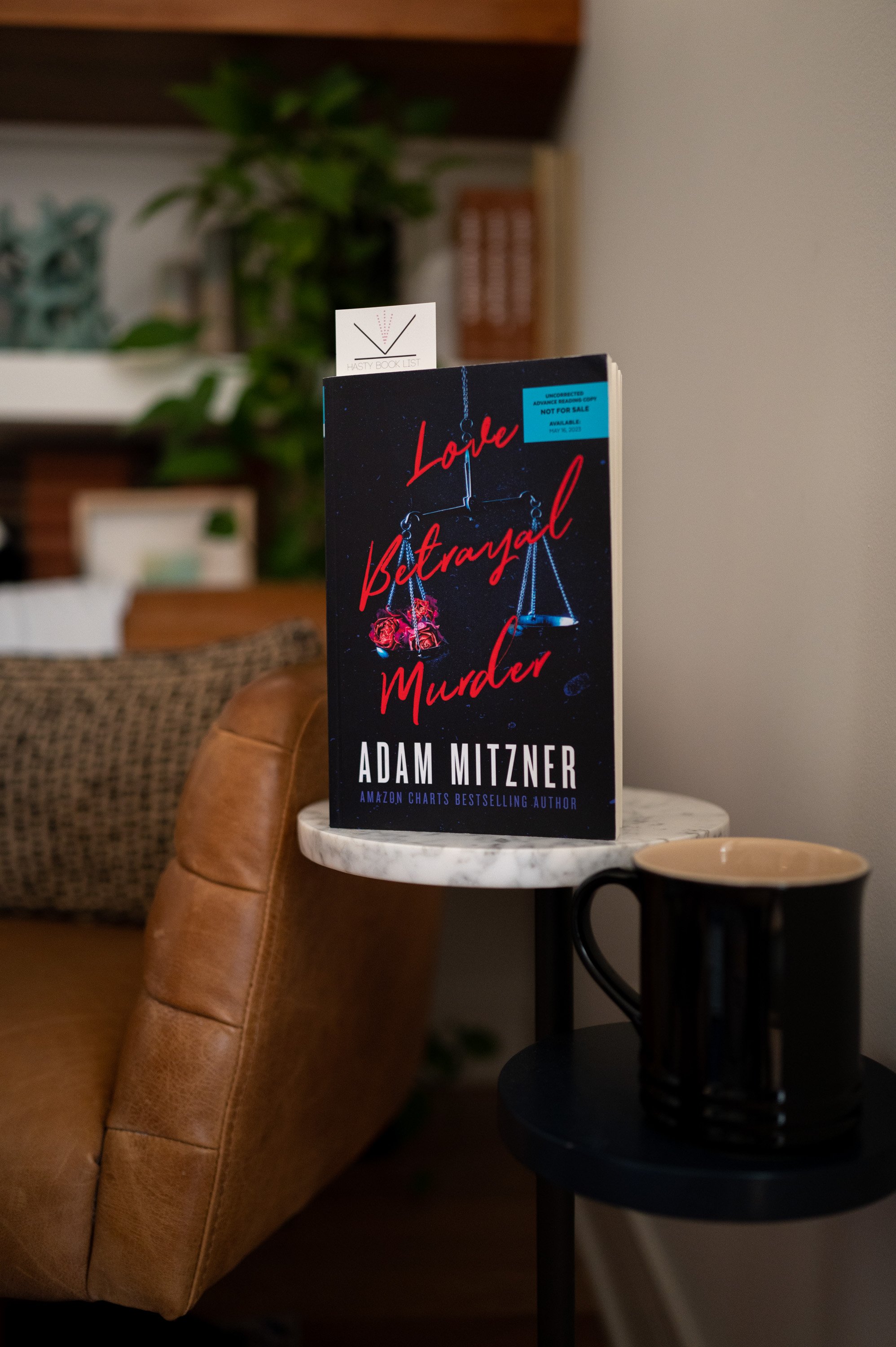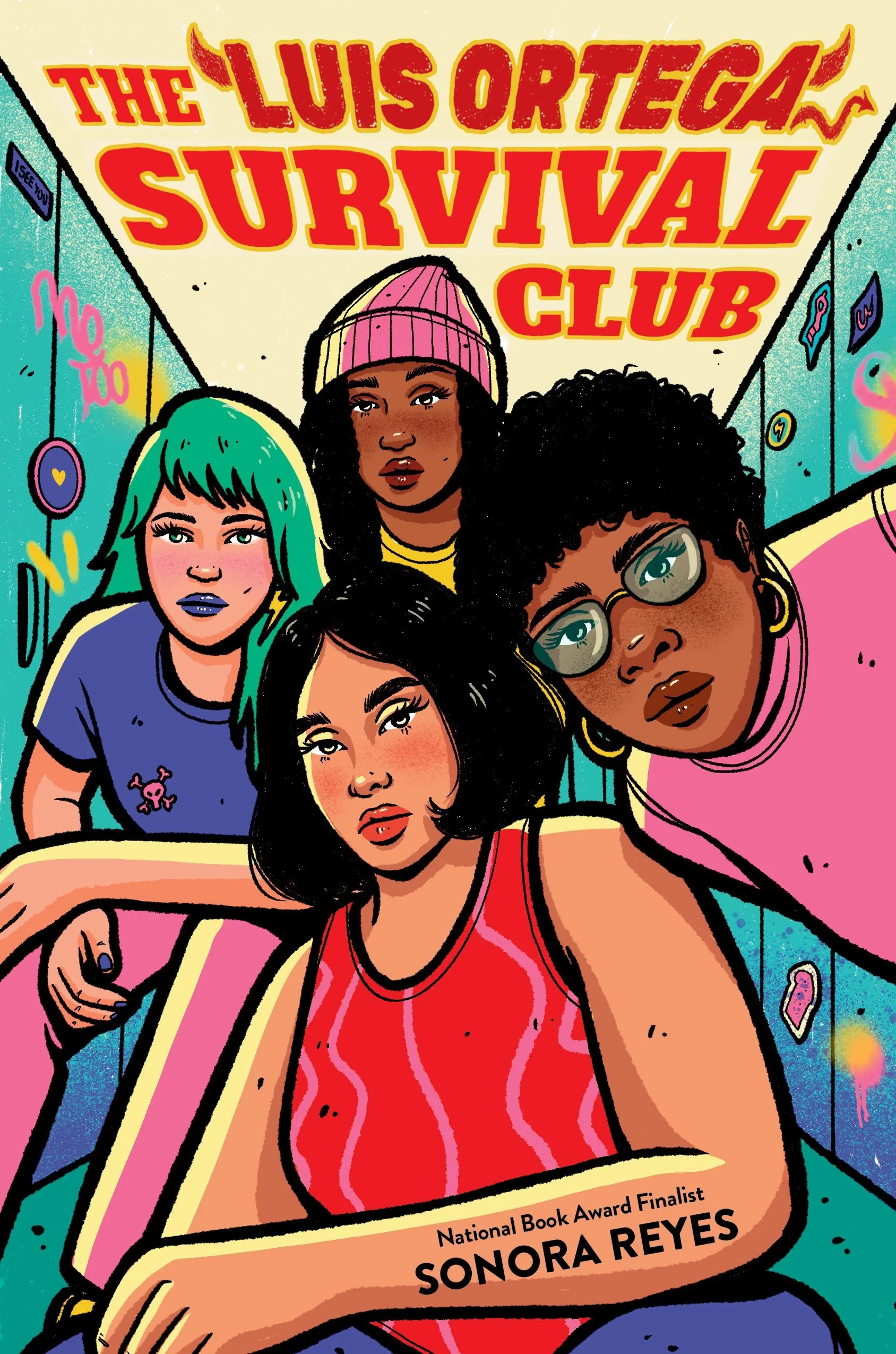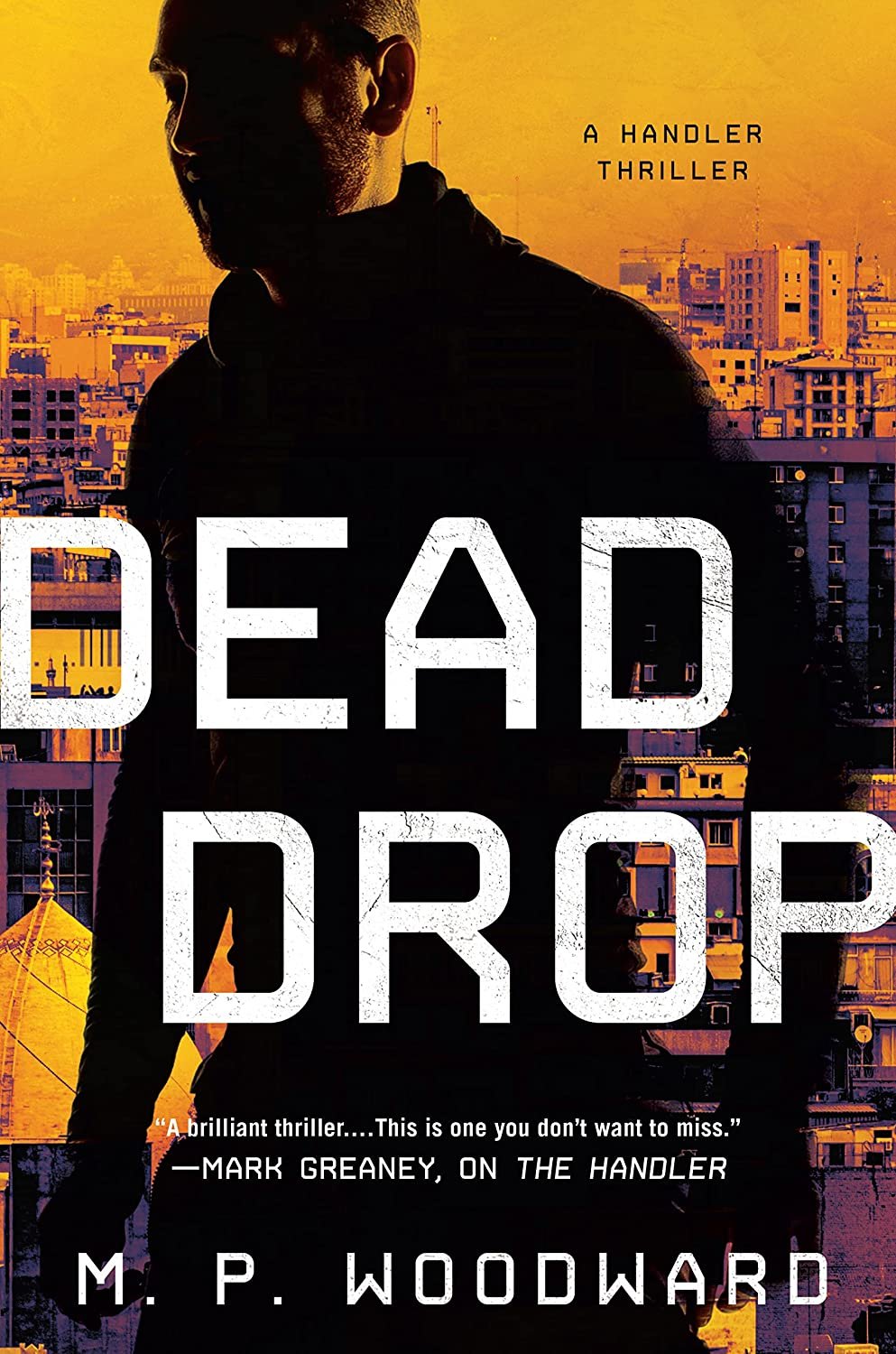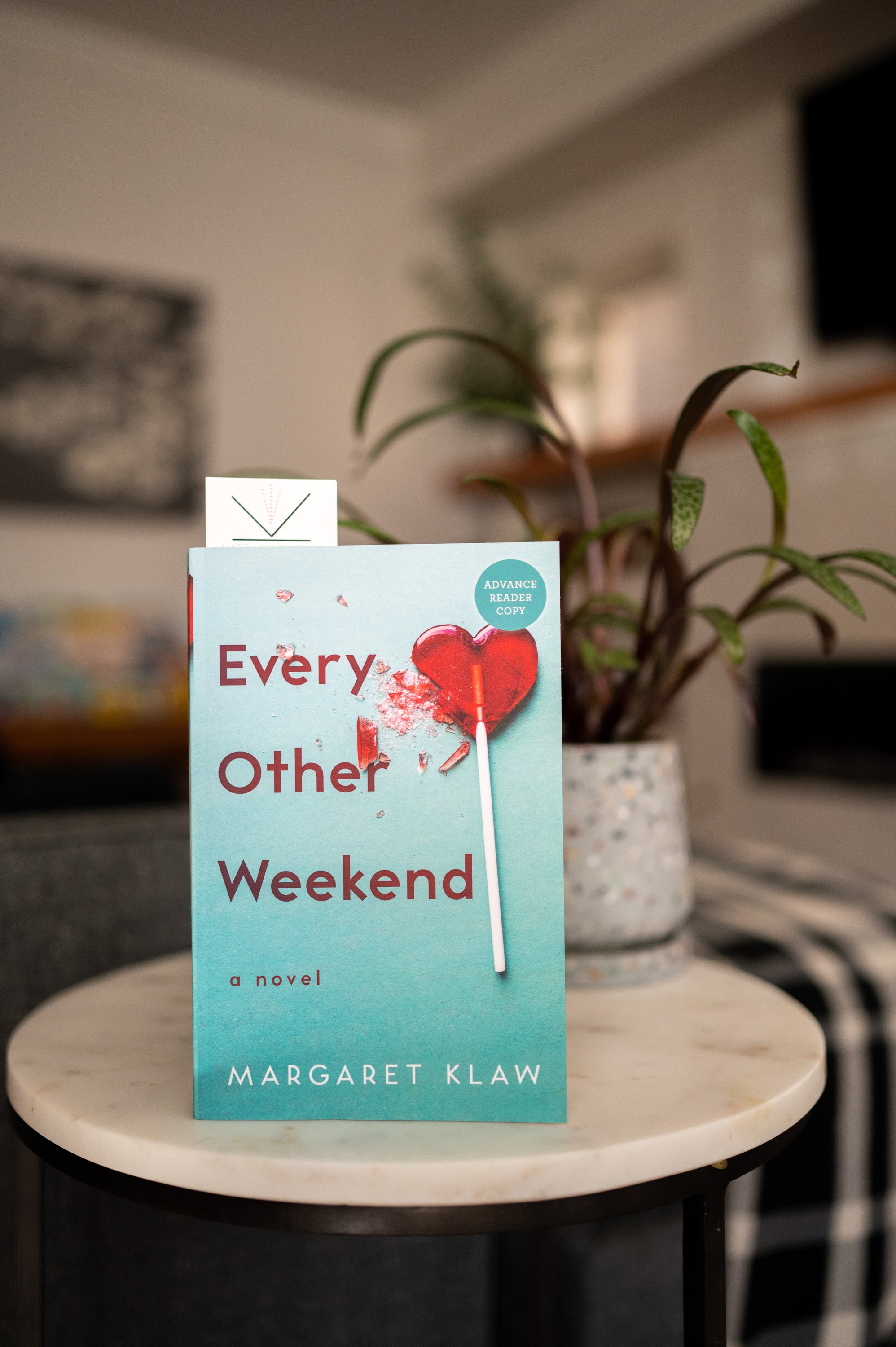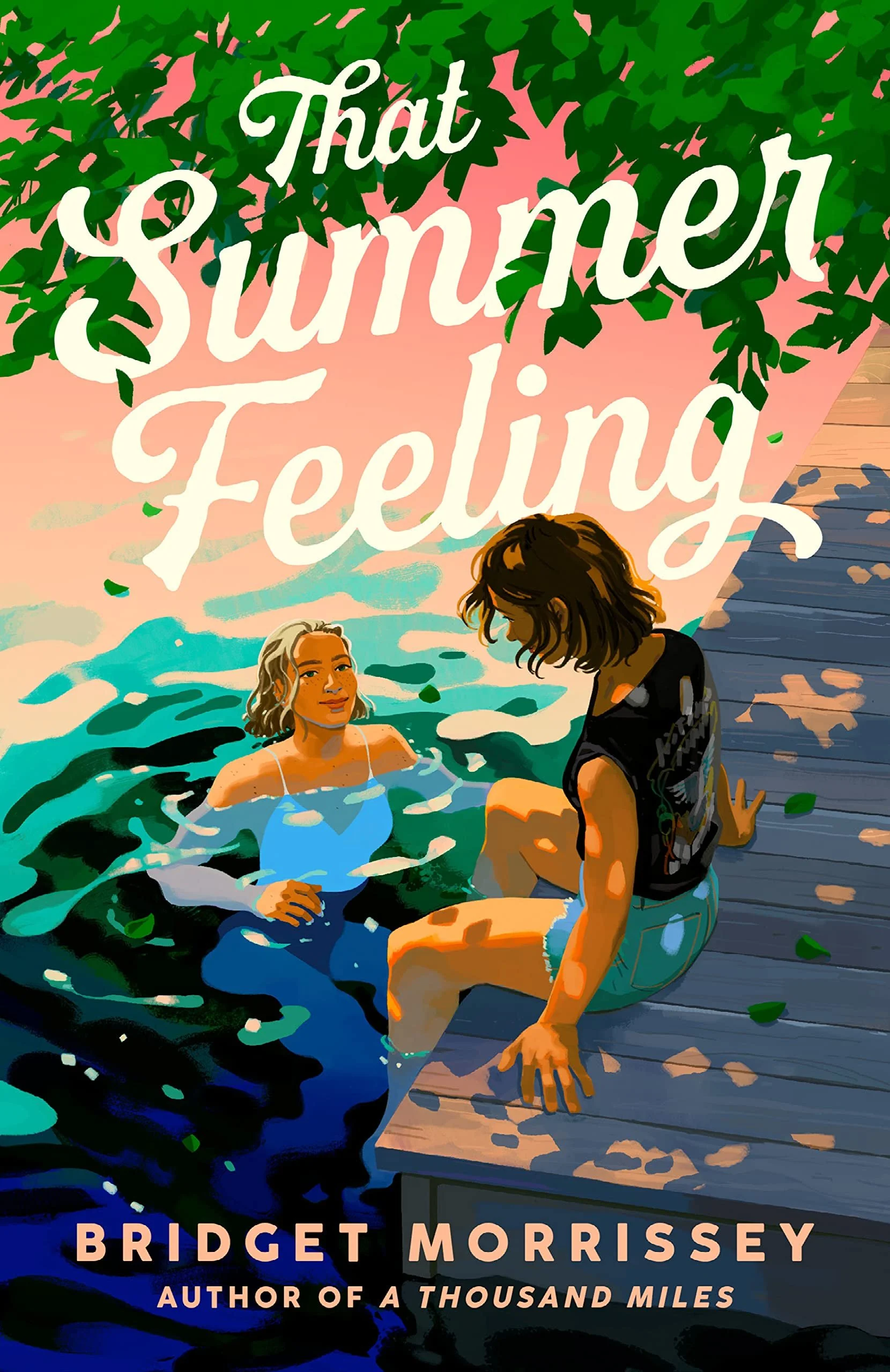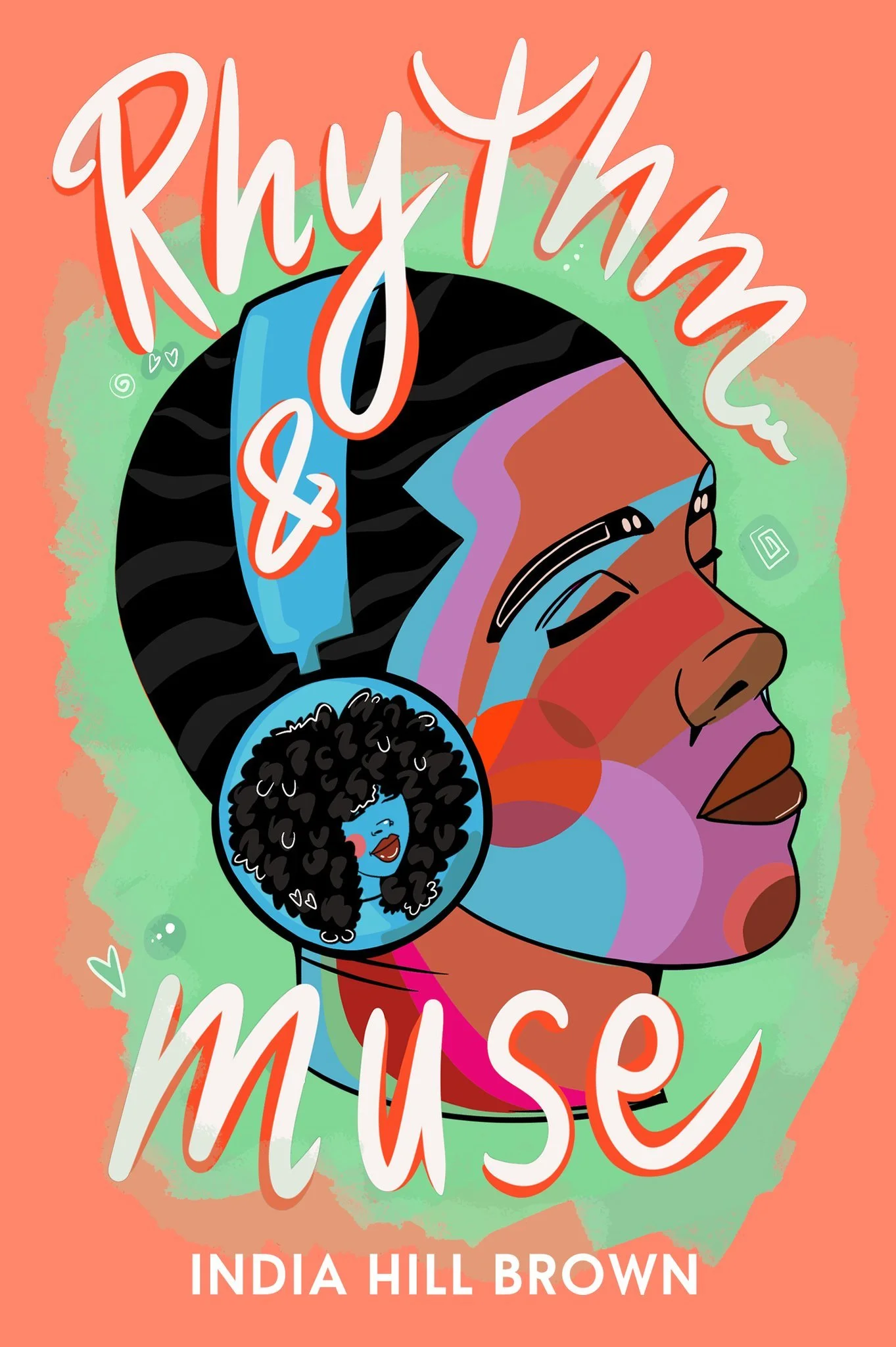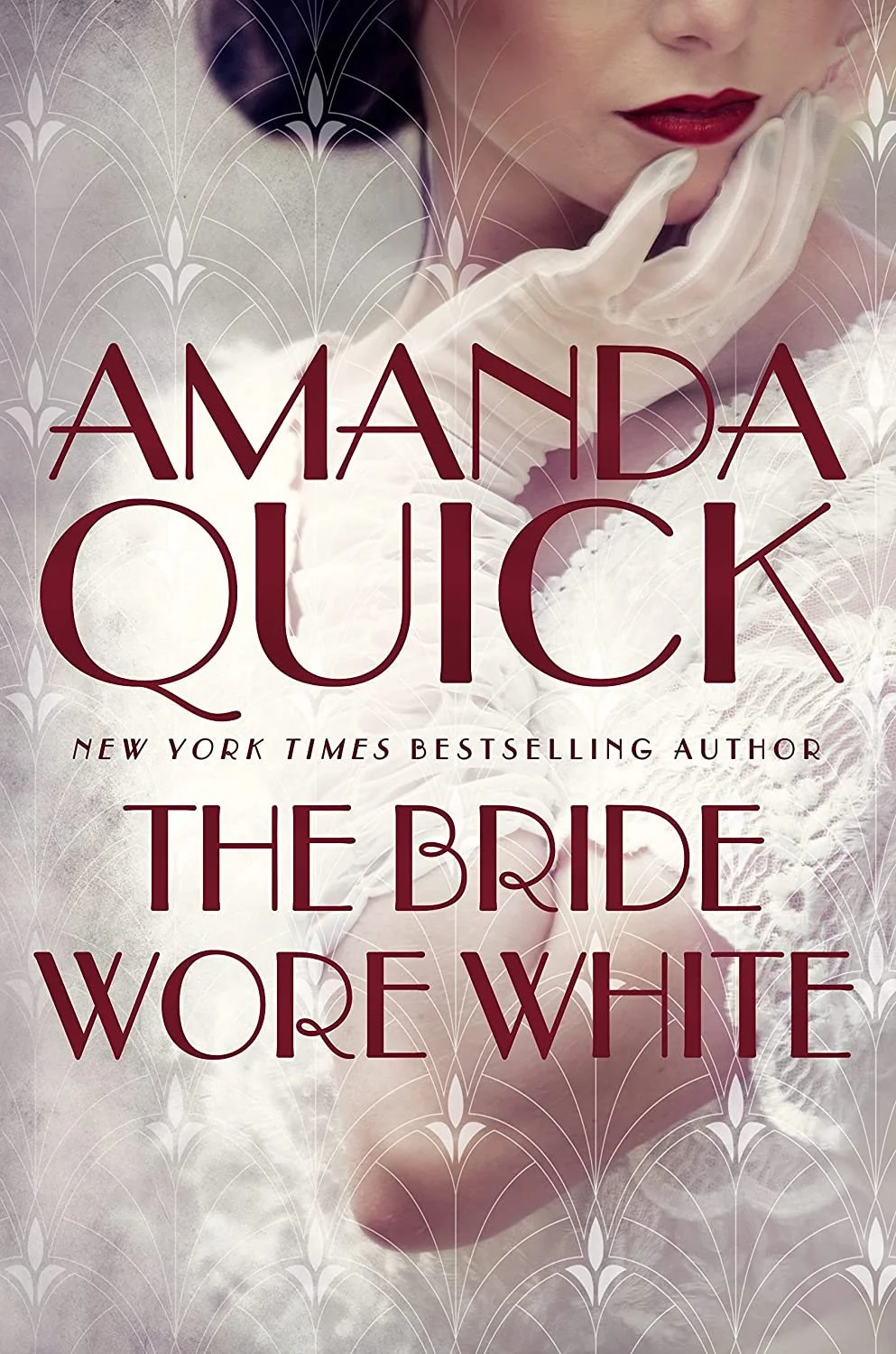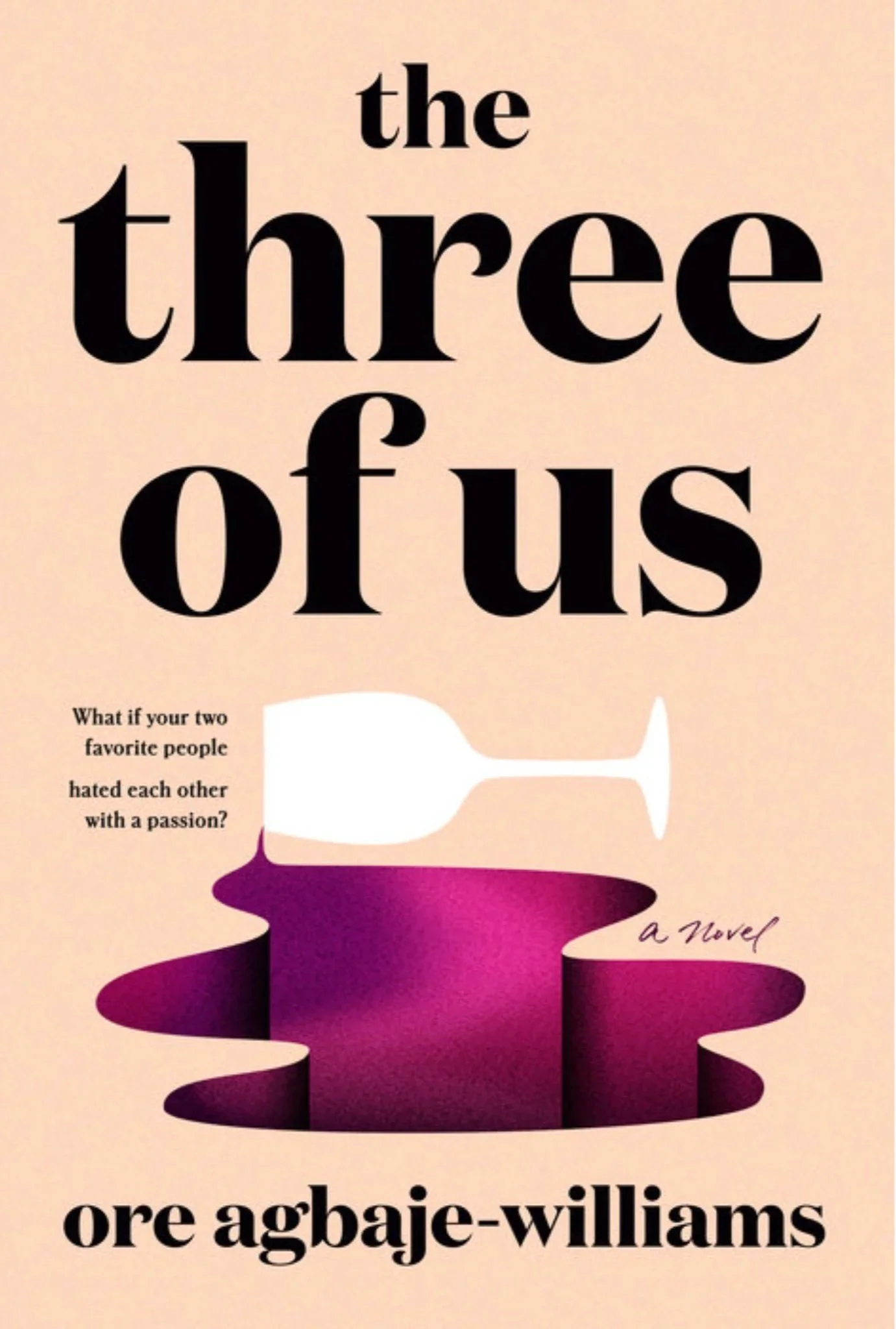Books Coming Out in May
Book Roundup - Books Coming Out in May
I want to note that I do not get paid to do these posts, I just love authors and the book industry. However, they do take time and energy to create. If you want to donate a few dollars to my coffee fund, which keeps this blog going, you can do so here: https://venmo.com/AshleyHasty or here: http://paypal.me/hastybooklist.
Of White Ashes by Constance Hays Matsumoto and Kent Matsumoto
The bombing of Pearl Harbor propels America into WWII and two Japanese Americans into chaos. Separated by the Pacific, each embarks on a tumultuous path to survive childhood and live the American dream. Ruby Ishimaru loses her liberty and is uprooted from her Hawaii home to Japanese American incarceration camps on the mainland. Koji Matsuo strains under the menacing clouds of the Japanese war machine and Hiroshima atomic bombing while concealing a dangerous secret—one that threatens his family’s safety.
When destiny brings Ruby and Koji together in California, their chemistry is magnetic, but wounds of trauma run deep and threaten their love as another casualty of war.
Inspired by the true stories of the authors’ family, Of White Ashes crosses oceans and cultures, illuminating the remarkable lives of ordinary people who endure seemingly unbearable hardship with dignity and patience. Their experiences compel us to reflect on the resilience of humanity and the risk of history repeating itself.
Where Waters Meet by Zhang Ling
A daughter discovers the dramatic history that shaped her mother’s secret life in an emotional and immersive novel by Zhang Ling, the bestselling author of A Single Swallow.
There was rarely a time when Phoenix Yuan-Whyller’s mother, Rain, didn’t live with her. Even when Phoenix got married, Rain, who followed her from China to Toronto, came to share Phoenix’s life. Now at the age of eighty-three, Rain’s unexpected death ushers in a heartrending separation.
Struggling with the loss, Phoenix comes across her mother’s suitcase―a memory box Rain had brought from home. Inside, Phoenix finds two old photographs and a decorative bottle holding a crystallized powder. Her auntie Mei tells her these missing pieces of her mother’s early life can only be explained when they meet, and so, clutching her mother’s ashes, Phoenix boards a plane for China. What at first seems like a daughter’s quest to uncover a mother’s secrets becomes a startling journey of self-discovery.
Told across decades and continents, Zhang Ling’s exquisite novel is a tale of extraordinary courage and survival. It illuminates the resilience of humanity, the brutalities of life, the secrets we keep and those we share, and the driving forces it takes to survive.
Clytemnestra by Costanza Casati
Madeline Miller's Circe meets Cersei Lannister in a stunning debut following Clytemnestra, the most notorious heroine of the ancient world and the events that forged her into the legendary queen.
As for queens, they are either hated or forgotten. She already knows which option suits her best...
You were born to a king, but you marry a tyrant. You stand by helplessly as he sacrifices your child to placate the gods. You watch him wage war on a foreign shore, and you comfort yourself with violent thoughts of your own. Because this was not the first offence against you. This was not the life you ever deserved. And this will not be your undoing. Slowly, you plot.
But when your husband returns in triumph, you become a woman with a choice.
Acceptance or vengeance, infamy follows both. So, you bide your time and force the gods' hands in the game of retribution. For you understood something long ago that the others never did.
If power isn't given to you, you have to take it for yourself.
The Marriage Box by Corie Adjmi
Casey Cohen, a Middle Eastern Jew, is a sixteen-year-old in New Orleans in the 1970s when she starts hanging out with the wrong crowd. Then she gets in trouble—and her parents turn her whole world upside down by deciding to return to their roots, the Orthodox Syrian Jewish community in Brooklyn.
In this new and foreign world, men pray daily, thanking God they’re not women; parties are extravagant events at the Museum of Natural History; and the Marriage Box is a real place, a pool deck designated for teenage girls to put themselves on display for potential husbands. Casey is at first appalled by this unfamiliar culture, but after she meets Michael, she’s enticed by it. Looking for love and a place to belong, she marries him at eighteen, believing she can adjust to Syrian ways. But she begins to question her decision when she discovers that Michael doesn’t want her to go to college—he wants her to have a baby instead.
Love Buzz by Neely Tubati-Alexander
A chance romantic encounter during a wild night at a Mardi Gras bachelorette party launches straight-laced Serena Khan’s carefully constructed life into chaos. After their conversation is cut short, Serena’s need to find Julian, the handsome, mysterious man she can’t get off her mind, is both irresistible and totally irrational. She has officially achieved the safe, stable life most dream of. A man is not part of her plan.
As she desperately combs Seattle for her New Orleans flame, stripping away the perfectly curated life that would have made her mother proud, Serena must decide if the pursuit of real passion is worth it, and fast, before she destroys the life she always thought she wanted.
Magician and Fool: Book One, Arcana Oracle Series
Pamela Colman Smith, newly arrived from New York to her birthplace of London, is received as an oddball in Victorian society. Her second sight helps her in her new job: illustrating tarot cards for the Golden Dawn, a newly formed occult group. But when Pamela refuses to share her creations with Aleister Crowley, a controversial magician, he issues a threat: give up the cards’ power, or he’ll harm her muses.
In the midst of this battle, two of Pamela’s idols, the actors Henry Irving and William Terriss, take her under their wing. Henry, who tutors her as the leader of the Lyceum Theatre, becomes the muse for her Magician card. William Terriss, teaching her by examples of instinct and courage, becomes the muse for her Fool card. As Pamela begins to create the tarot deck, she is almost overwhelmed by the race to possess the magical power of her cards. In order to defeat Aleister, Henry and William will have to transform into living incarnations of the Magician and the Fool—and Pamela will have to learn how to conjure her own magic.
The Secret Book of Flora Lea by Patti Callahan Henry
When a woman stumbles across a mysterious children’s book, long-held secrets about her missing sister and their childhood spent in the English countryside during World War II are revealed in this “transporting, heartfelt, and atmospheric” (Christina Baker Kline, #1 New York Times bestselling author) novel from the New York Times bestselling author of Surviving Savannah and Becoming Mrs. Lewis.
Fourth Wing by Rebecca Yarros
Enter the brutal and elite world of a war college for dragon riders from USA Today bestselling author Rebecca Yarros
Twenty-year-old Violet Sorrengail was supposed to enter the Scribe Quadrant, living a quiet life among books and history. Now, the commanding general—also known as her tough-as-talons mother—has ordered Violet to join the hundreds of candidates striving to become the elite of Navarre: dragon riders.
But when you’re smaller than everyone else and your body is brittle, death is only a heartbeat away...because dragons don’t bond to “fragile” humans. They incinerate them.
With fewer dragons willing to bond than cadets, most would kill Violet to better their own chances of success. The rest would kill her just for being her mother’s daughter—like Xaden Riorson, the most powerful and ruthless wingleader in the Riders Quadrant.
She’ll need every edge her wits can give her just to see the next sunrise.
Yet, with every day that passes, the war outside grows more deadly, the kingdom's protective wards are failing, and the death toll continues to rise. Even worse, Violet begins to suspect leadership is hiding a terrible secret.
Friends, enemies, lovers. Everyone at Basgiath War College has an agenda—because once you enter, there are only two ways out: graduate or die.
All the Days of Summer by Nancy Thayer
A woman’s second act on the beautiful island of Nantucket delivers much more than she expected in this hopeful novel by New York Times bestselling author Nancy Thayer.
Heather Willette has a good life in Concord, Massachusetts—complete with a husband who runs his own business and a son to take up his mantle one day. But now that her marriage has fizzled out and Ross, her only child, is graduating from college and getting serious with his girlfriend, Heather wonders if that life is the one she really wants. Ready to seek out her own happiness and discover herself again, Heather decides to leave her husband and rent a cottage on Nantucket. And her plan is going perfectly—until Ross announces he’s moving to Nantucket to work at his girlfriend’s family’s construction business instead of going back home to work with his own father, like he'd promised. Worst of all for Heather, this means having to get along with her.
Kailee Essex is thrilled that Ross is willing to move to her hometown. She has big hopes for their happily ever after, especially now that her parents are finally showing interest in her career. She’s less thrilled, however, about his mother living nearby. Kailee has clashed with Heather since the day they met. But anything is possible in the summer sun and sea breezes of Nantucket—even reconciliation. And when change comes sooner than either Heather or Kailee expect, they must learn to overcome their differences to fight for the future they want.
With All the Days of Summer, beloved storyteller Nancy Thayer delivers a moving novel that explores the complexity of family and the unexpected ways fate can guide you forward.
America Redux: Visual Stories from Our Dynamic History by Ariel Aberg-Riger
A critical, unflinching cultural history and fierce beacon of hope for a better future, America Redux is a necessary and galvanizing read.
What are the stories we tell ourselves about America?
How do they shape our sense of history,
cloud our perceptions,
inspire us?
America Redux explores the themes that create our shared sense of American identity and interrogates the myths we’ve been telling ourselves for centuries. With iconic American catchphrases as chapter titles, these twenty-one visual stories illuminate the astonishing, unexpected, sometimes darker sides of history that reverberate in our society to this very day—from the role of celebrity in immigration policy to the influence of one small group of white women on education to the effects of “progress” on housing and the environment, to the inspiring force of collective action and mutual aid across decades and among diverse groups.
Fully illustrated with collaged archival photographs, maps, documents, graphic elements, and handwritten text, this book is a dazzling, immersive experience that jumps around in time and will make you view history in a whole different light.
Underwater Daughter: A Memoir of Survival and Healing by Antonia Deignan
Tuni’s father began sexually abusing her when she was just four years old. Her mother, though aware of the abuse, was a silent witness—one either incapable or unwilling to intervene—and the abuse continued until Tuni was eleven. Three years later, when Tuni was fourteen, she was raped by an adult actor who was part of her cast in a professional theater production. These traumas would go on to shape much of her life.
Underwater Daughter follows how Tuni grappled with her relationship with her parents, the aftermath of her rape, an eating disorder, drug and alcohol excesses, and shame as she came of age and began to build a life. In order to not lose her inner innocence, in order to protect herself, in order to believe in love, she began early on to create imaginary worlds into which she could escape—to use dreams to transport her away from her fears. By early adulthood, she was well practiced at slapping lipstick (pink, frosty, kiss-me, gloss-over, perfect lipstick) over whatever darkness might be bubbling beneath. Hired by a dance company right out of high school, she found success as a dancer in Chicago and New York, but in her personal and emotional life, she continued to struggle. Ultimately, it took her decades of dancing, hiding, faking, fucking, costuming, implanting, dissociating, marrying, divorcing, and purging—all while staying silent about her past trauma—before a bike accident at age fifty-five forced her to stop and truly take stock of her life. As she did, she came to a resting place, finally, in regard to her father; developed the loving relationship she’d always wanted with her mother; and came to understand that, in the end, love is all anyone wants—or needs.
A Greek Love by Zoe Valdes
For readers of Isabel Allende, Gabriela Garcia, and Julia Alvarez, the story of a woman who must fight for her love and her child in a Cuba suffocated by oppression
A free spirit who spends time near the port of Havana, where her friend Osiris is known as the “Greek sailormen's whore,” teenager Zé becomes pregnant after a brief love affair with a captain's son her age. By the time she realizes her condition, the ship has left and the boy is gone. In her father's Cuba, an unwed teenage mother is a source of scandal and shame and a threat to his ambitions in the Party. He disowns her and brutally throws her out of her home. Led by her mother, she leaves the city for refuge in Matanzas, a university town rich in Afro-Cuban culture, where her mother's sister, a music scholar, lives and where she will raise her child mentored by these three older women—aunt, mother, and Osiris.
Years later, Zé’s son, Petros, has become a world-class musician bridging Cuban and Greek traditions, while Zé has become a scholar herself. When a recording executive invites Petros to give concerts in Greece, Zé seeks permission from the authorities to leave the island and accompany him. Secretly—a secret they guard from the authorities and her father, now a Party stalwart—they both nourish the hope of somehow finding Petros’s father and Zé’s one great, lost love.
With echoes of the breakout novel that made Zoé Valdés an international literary star, A Greek Love is a tale of passion, endurance, and hope—and a woman's tenacious love.
Bird Hotel by Joyce Maynard
Enter the magical world of La Llorona with New York Times bestselling author Joyce Maynard.
After a childhood filled with heartbreak, Irene, a talented artist, finds herself in a small Central American village where she checks into a beautiful but decaying lakefront hotel called La Llorona at the base of a volcano.
The Bird Hotel tells the story of this young American who, after suffering tragedy, restores and runs La Llorona. Along the way we meet a rich assortment of characters who live in the village or come to stay at the hotel. With a mystery at its center and filled with warmth, drama, romance, humor, pop culture, and a little magic realism, The Bird Hotel has all the hallmarks of a Joyce Maynard novel that have made her a a leading voice of her generation
The Bird Hotel is a big, sweeping story spanning four decades, offering lyricism as well as whimsy. While the world New York Times bestselling author Joyce Maynard brings to life on the page is rendered from her imagination, it’s one informed by the more than twenty years of which she has spent a significant amount of her time in a small Mayan indigenous village in Guatemala.
As the New York Times said, "[Maynard] has an unswerving eye, a sharply perked ear, and the ability to keep her readers hanging on her words." People Magazine said of her: "Maynard’s spare prose packs a rich emotional punch.”
Hotel Cuba by Aaron Hamburger
Fleeing the chaos of World War I and the terror of the Soviet Revolution, practical, sensible Pearl Kahn and her lovestruck, impulsive younger sibling Frieda sail for America to join their sister in New York. But discriminatory new immigration laws bar their entry, and the young women are turned back at Ellis Island. With few options, Pearl and Frieda head for Havana, Cuba, convinced they will find a way to overcome this setback.
At first, life in big-city Prohibition-era Havana is overwhelming, like nothing Pearl and Frieda have ever experienced—or could have ever imagined in the rural shtetl where they grew up. As the sisters begin to adjust, their plans for going to America together become complicated. Frieda falls for the not-so-dreamy man of her dreams while Pearl’s life opens up unexpectedly, offering her a taste of freedom and heady romance, and an opportunity to build a future on her own terms. Though to do so, she must confront her past and the shame she has long carried.
A heartbreaking, epic family story, Hotel Cuba explores the profound courage of two women displaced from their home who strive to create a new future in an enticing and dangerous world far different from anything they have ever known.
The Castle Keepers by Aimie Runyan, J'nell Ciesielski, and Rachel McMillan
Leedswick Castle has housed the Alnwick family in the English countryside for generations, despite a family curse determined to destroy their legacy and erase them from history.
1870. After a disastrous dinner at the Astor mansion forces her to flee New York in disgrace, socialite Beatrice Holbrook knows her performance in London must be a triumph. When she catches the eye of Charles Alnwick, one of the town’s most enviably-titled bachelors, she prepares to attempt a social coup and become the future Marchioness of Northridge. When tragedy and scandal strike the Alnwick family, Beatrice must assume the role of a lifetime: that of her true, brave self.
1917. Artist Elena Hamilton arrives in Northumberland determined to transform a soldier’s wounds into something beautiful. Tobias Alnwick’s parents have commissioned a lifelike mask to help their son return to his former self after battle wounds partially destroyed his face. But Elena doesn’t see a man who needs fixing—she sees a man who needn’t hide. Yet secrets from their past threaten to chase away the peace they’ve found in each other and destroy the future they’re creating.
1945. Alec Alnwick returns home from the war haunted but determined to leave death and destruction behind. With the help of Brigitta Mayr, the brilliant young psychoanalyst whose correspondence was a lifeline during his time on the Western Front, he reconstructs his family’s large estate into a rehabilitation center for similarly wounded soldiers. Now Alec’s efforts may be the only chance to redeem his family legacy—and break the curse on the Alnwick name—once and for all.
The Good Slope by Elizabeth Rau
In vivid and lyrical prose, Elizabeth Rau chronicles in The Good Slope her childhood in the Midwest, her many years as a newspaper reporter, and, above all, her plunge into motherhood in middle age. At a time when some writers tend to grouse about raising children, Rau revels in her good fortune and the day-to-day: a run-in with Julia Roberts on the set of “Mystic Pizza”; teaching her younger son how to read using “Garfield” comic books; encouraging her older son to design his grandmother’s gravestone; observing the motley crew of boys who patronize “the yellow house” for years, bringing their wit, charm, and stuff, from yo-yos to baseball gloves.
With a journalist’s eye for detail, Rau reveals in her storytelling a life that is joyful, fleeting, and, at times, tinged with sadness. Engaging, yet never indulgent, this collection elevates moments we take for granted into luminous stories about the experience of home.
Falling Hard for the Royal Guard by Megan Clawson
Love is in the heir in this royally good rom com debut releasing in Spring 2023 – perfect for anyone who likes relatable heroines (with great hair), hot and aloof book boyfriends (with great hats), near misses, almost kisses and a corgi or two.
Despite living in an actual castle, happily ever after is evading Margaret ‘Maggie’ Moore.
From her bedroom in the Tower of London, twenty-six-year-old Maggie has always dreamed of her own fairy-tale ending.
Yet this is twenty-first century London, so instead of knights on white horses, she has catfish on Tinder. And with her last relationship ending in spectacular fashion, she swears off men for good.
And then a chance encounter with Royal Guard Freddie forces Maggie to admit that she isn’t ready to give up on love just yet… But how do you catch the attention of someone who is trained to ignore all distractions?
Can she snare that true love’s first kiss… or is she royally screwed?
A right royal rom com, perfect for fans of Red, White and Royal Blue and The Royal We.
Meet Me at the Lake by Carley Fortune
Fern Brookbanks has wasted far too much of her adult life thinking about Will Baxter. She spent just twenty-four hours in her early twenties with the aggravatingly attractive, idealistic artist, a chance encounter that spiraled into a daylong adventure in the city. The timing was wrong, but their connection was undeniable: they shared every secret, every dream, and made a pact to meet one year later. Fern showed up. Will didn’t.
At thirty-two, Fern’s life doesn’t look at all how she once imagined it would. Instead of living in the city, Fern’s back home, running her mother’s lakeside resort—something she vowed never to do. The place is in disarray, her ex-boyfriend’s the manager, and Fern doesn’t know where to begin.
She needs a plan—a lifeline. To her surprise, it comes in the form of Will, who arrives nine years too late, with a suitcase in tow and an offer to help on his lips. Will may be the only person who understands what Fern’s going through. But how could she possibly trust this expensive suit-wearing mirage who seems nothing like the young man she met all those years ago? Will is hiding something, and Fern’s not sure she wants to know what it is.
But ten years ago, Will Baxter rescued Fern. Can she do the same for him?
Stars Collide by Rachel Lacey
From Rachel Lacey, award-winning author of Read Between the Lines, comes a sexy slow-burn romance about two dynamic divas who collide on the world’s biggest stage.
Eden Sands has been a star for twenty years, but it’s lonely at the top. Her mediocre marriage just ended, and her inner circle is smaller than ever. The stage is the only place she’s ever felt like she truly belonged, and yet, her last album flopped, and her upcoming tour hasn’t sold out. Eden’s desperate for her star to shine bright again, but when her team suggests a collaboration with an up-and-coming young star to give her a boost, she balks.
Anna Moss is pop music’s rising star. She’s idolized Eden Sands for most of her life—so it’s a dream come true when she’s invited to perform with her at the Grammys. Anna’s tired of being defined by her bubbly persona. She wants to be taken seriously as an artist, and a duet with Eden could be just what she needs.
As Anna and Eden rehearse, they soon realize they have more in common than their musical talents. Now they just have to decide if what is between them is a one-hit wonder or the making of a romance worthy of one of the greatest love songs of all time.
Simone Biles: A Little Golden Book Biography By JaNay Brown-Wood
Help your little one dream big with a Little Golden Book biography about Olympic medalist and world-champion gymnast Simone Biles! Little Golden Book biographies are the perfect introduction to nonfiction for preschoolers.
This Little Golden Book about Simone Biles--the superstar Olympic athlete whose performance in the gymnastics arena has cemented her GOAT status--is an inspiring read-aloud for young children.
To Die Beautiful by Buzzy Jackson
Historian and award-winning author of three nonfiction books Buzzy Jackson brings to life the incredible true story of World War II hero Hannie Schaft in this debut, TO DIE BEAUTIFUL (Dutton; on sale May 2, 2023). Following Hannie’s harrowing journey as a member of the Dutch Resistance from 1940-1945, the novel is a riveting tale of love, loyalty, and the limits we confront when our deepest values are tested.
When the Nazi occupation in The Netherlands endangers her two Jewish best friends, shy law student Hannie is moved to fight against the insidious rise of fascism. She first begins her Resistance work as a courier but quickly realizes the value of her unsuspecting appearance. Soon, she’s an active armed member, bombing munitions factories and luring in powerful Nazis with her beauty to assassinate them at point-blank range. Word of her threatening prowess even makes its way to Adolf Hitler, who dubs her the "Girl with Red Hair."
As the world around her collapses, Hannie builds a chosen family within the Resistance, even falling in love with a daring fellow resistor at a tremendous cost. Her greatest weapon is her determination to "stay human" (blijf menselijk), a promise increasingly difficult to keep amidst the devastation that surrounds her. Hannie continually channels the strongest women in her life—including her late sister Annie—in order to stand up in the face of unthinkable danger.
Although Hannie is renowned in the Netherlands, her inspirational resistance work is little-known in the U.S. A member of the National Book Critics Circle with a PhD in history, Jackson’s skills as a writer and historian bring Hannie’s story vividly to life for English-language audiences. Her meticulous historical research, alongside the emotional weight and striking present-day relevance of Hannie’s story, make TO DIE BEAUTIFUL a moving page-turner not to be missed.
City of Last Chances by Adrian Tchaikovsky
Arthur C. Clarke winner Adrian Tchaikovsky's triumphant return to fantasy with a darkly inventive portrait of a city under occupation and on the verge of revolution.
There has always been a darkness to Ilmar, but never more so than now. The city chafes under the heavy hand of the Palleseen occupation, the choke-hold of its criminal underworld, the boot of its factory owners, the weight of its wretched poor and the burden of its ancient curse.
What will be the spark that lights the conflagration?
Despite the city's refugees, wanderers, murderers, madmen, fanatics and thieves, the catalyst, as always, will be the Anchorwood – that dark grove of trees, that primeval remnant, that portal, when the moon is full, to strange and distant shores.
Ilmar, some say, is the worst place in the world and the gateway to a thousand worse places.
Ilmar, City of Long Shadows.
City of Bad Decisions.
City of Last Chances.
A Work In Progress by Jarrett Lerner
A young boy struggles with body image in this poignant middle grade journey to self-acceptance told through prose, verse, and illustration.
Will is the only round kid in a school full of string beans. So he hides...in baggy jeans and oversized hoodies, in the back row during class, and anywhere but the cafeteria during lunch. But shame isn't the only feeling that dominates Will's life. He's also got a crush on a girl named Jules who knows he doesn't have a chance with--string beans only date string beans--but he can't help wondering what if?
Will's best shot at attracting Jules's attention is by slaying the Will Monster inside him by changing his eating habits and getting more exercise. But the results are either frustratingly slow or infuriatingly unsuccessful, and Will's shame begins to morph into self-loathing.
As he resorts to increasingly drastic measures to transform his appearance, Will meets skateboarder Markus, who helps him see his body and all it contains as an ever-evolving work in progress.
Can't I Go Instead by Lee Geum-yi
Two women's lives and identities are intertwined—through World War II and the Korean War—revealing the harsh realities of class division in the early part of the 20th century.
“Lee Geum-yi has a gift for taking little-known embers of history and transforming them into moving, compelling, and uplifting stories.”
—Heather Morris, #1 New York Times bestselling author
Can't I Go Instead follows the lives of the daughter of a Korean nobleman and her maidservant in the early 20th century. When the daughter’s suitor is arrested as a Korean Independence activist, and she is implicated during the investigation, she is quickly forced into marriage to one of her father’s Japanese employees and shipped off to the United States. At the same time, her maidservant is sent in her mistress's place to be a comfort woman to the Japanese Imperial army.
Years of hardship, survival, and even happiness follows. In the aftermath of WWII, the women make their way home, where they must reckon with the tangled lives they've led, in an attempt to reclaim their identities, and find their place in an independent Korea.
American Arcadia by Laura Scalzo
New York City, 1985, the scaffolded and torchless Statue of Liberty is under reconstruction,
the Twin Towers hum with money, and the clubs pulse with music. Young Wall Streeter,
Mina Berg, and her roommate, Chry Risk, strike up friendships with the volatile Danny Nyro
and easygoing Dare Fiore. Mina wants Chry’s family prestige, while Chry only wants to play
the bass like Jaco Pastorius. Nyro trades on his father’s notoriety and Dare is keeping secrets. Each of these twenty-somethings attempts to rewrite their origin story as they find themselves knotted in the cross purposes of friendship and love, life and death. Meanwhile, the Sicilian grandmothers on Staten Island are telling tall tales of a fugitive mermaid who lives in the New York Harbor. Themes of art, immigration, reproductive rights, AIDS, assault, class, and betrayal, simmer beneath a dynamic plot that spans one life-altering year.
Doña Cleanwell Leaves Home: Stories
Ana Castillo is a literary legend who has excited readers for decades with her poetry, essays, fiction, non-fiction, and anthologies. Her first collection of stories was published in 1996 and now 27 years later she shares her second collection, DOÑA CLEANWELL LEAVES HOME: Stories, which HarperVia is proud to release as part of a two-book deal (a novel Isabel 2121 will be published in 2024). The stories in this collection are daring and captivating as Castillo explores the secrets that are kept within households and the women they impact the most. This breakout collection cements her place as a leading voice in feminist fiction.
DOÑA CLEANWELL LEAVES HOME (May 16, 2023; HarperVia hardcover; ISBN: 978-0-06325-941-; $27.99; 256 pages) flows effortlessly from story to story. Throughout, these stories touch on identity, relationships, sexuality, racism, societal expectations for women, and more. First is “Cuernavaca,” where a son chases ghosts and the mysterious death of a socialite. A brother feels ready to go through his sister’s journals and letters two years after her death and discovers the true depths of what he had thought was just a fling in “Ven.” “Ada and Pablo” explores the seasons of a marriage, while in “Tango,” a mother worries about her daughter being stalked by an ex-boyfriend while she is away at college. In “The Girl in the Green Dress,” a young librarian is haunted by local lore, while “The Night at Nonna’s” features Lulu and Marie, high school best friends who share a secret as they straddle the line between girlhood and womanhood.
The title story, “Doña Cleanwell Leaves Home,” closes out the collection. The first person in her traditional Mexican American family to graduate from high school, Katia is entering adulthood at a time of turbulent change. Across the nation young people are fighting for civil and women’s rights and protesting the Vietnam War and brutal dictatorships in South America. Like so many of her generation, Katia wants to make the world a better place, and is determined to follow her own path.
As she considers moving to California to join La Causa, Mexican American activist Cesar Chavez’s movement to improve the working conditions of migrant farmer workers, Katia receives an unexpected gift from her father: a plane ticket to Mexico City. Bring back your mother, he says, tell her, her children need her. And so Katia joins this cause, to get Tina back to Chicago. But it won't be easy. Katia must learn to navigate a liberated version of her mother in a new country where she is now hawking supposedly superior cleaning products, called Donna Clean Well.
DOÑA CLEANWELL LEAVES HOME is a dazzling collection of short fiction from a revered writer. Spanning from Chicago to Mexico, the stories here conjure a Rorschach test for the reader, illuminating both the varied and distinctive emotional experiences we all share.
The Seeing Garden: A Novel by Ginny Kubitz Moyer
It’s 1910, and Catherine Ogden is aching to live a creative and meaningful life. That’s not easy to do when her aunt and uncle—and all of New York society—consider a good marriage to be the pinnacle of feminine achievement. But when Catherine visits Oakview, the Northern California estate of handsome bachelor William Brandt, she thinks that it might be possible to satisfy her family’s hopes as well as her own. In that beautiful place, she finds the promise of a new start and the opportunity to use her artistic gifts in designing the garden. But as Catherine is drawn into William’s hidden life, as well as the secrets of his estate staff, she discovers that Oakview holds both more opportunity and more risk than she ever imagined. It will take all her courage—and the lessons of some shocking revelations from the past—to choose the path that leads to real freedom.
Full of rich period detail and complex characters, and set against an unforgettable backdrop, The Seeing Garden explores what it takes for a woman to discern the path to her most authentic life.
In Feast or Famine by Mesu Andrews
Thrust into an arranged marriage, the daughter of ancient Egypt’s high priest plays a pivotal role in Joseph’s biblical narrative in this powerful novel from the award-winning author of Potiphar’s Wife.
Four-year-old Asenath witnesses her mother’s murder at the hands of Egypt’s foreign rulers. Groomed as a priestess by her overprotective father—the high priest of Egypt’s sun god, Ra—she is sequestered in a tower for fifteen years and convinced that her destiny is to heal the land by becoming queen to the next Egyptian Pharaoh. But her whole world is shaken when Egypt’s reigning foreign king gives Asenath as a bride to the newly appointed vizier—a Hebrew named Joseph.
Stepping out of her lofty tower, Asenath discovers treachery, deceit, and conspiracy, forcing her to redefine her destiny and choose where her true loyalties lie. Can she still trust the gods of Egypt? Or is it Elohim, the foreign God of her husband, who will help heal her nation during the feast and famine to come?
I Will Leave You Never by Ann Putnam
In the middle of a perilous drought in the Northwest, an arsonist begins setting fires all around. It gives Zoe Penney nightmares about her home—seated right next to tinder-dry woods—rising up in explosions of fire, as well as haunting dreams of a little boy deep in the forest.
Winter brings the longed-for rains but also a cancer diagnosis for Zoe’s husband, Jay, which plunges the family into disbelief and fear. The children lean in close to their parents, can’t stop touching them. As Jay’s treatment begins, nature lets loose with strange and startling encounters, while a shadowy figure hovers about the corners of the house.
First, Zoe’s fear turns to anger: How can I love you if I am to lose you? How can I live in joy when the sky is falling? But she gradually learns that it’s possible to love anything, even terrible things—if you can love them for what they are teaching you.
The Tiffany Girls by Shelley Noble
New York Times bestselling author Shelley Noble wows with a gripping historical novel about the real-life “Tiffany Girls,” a fascinating and largely unknown group of women artists behind Tiffany’s most legendary glassworks.
It’s 1899, and Manhattan is abuzz. Louis Comfort Tiffany, famous for his stained-glass windows, is planning a unique installation at the Paris World’s Fair, the largest in history. At their fifth-floor studio on Fourth Avenue, the artists of the Women’s Division of the Tiffany Glass Company are already working longer shifts to finish the pieces that Tiffany hopes will prove that he is the world’s finest artist in glass. Known as the “Tiffany Girls,” these women are responsible for much of the design and construction of Tiffany’s extraordinary glassworks, but none receive credit.
Emilie Pascal, daughter of an art forger, has been shunned in Paris art circles after the unmasking of her abusive father. Wanting nothing more than a chance to start a new life, she forges a letter of recommendation in hopes of fulfilling her destiny as an artist in the one place where she will finally be free to live her own life.
Grace Griffith is the best copyist in the studio, spending her days cutting glass into floral borders for Tiffany’s religious stained-glass windows. But none of her coworkers know her secret: she is living a double life as a political cartoonist under the pseudonym of G.L. Griffith—hiding her identity as a woman.
As manager of the women’s division, Clara Driscoll is responsible for keeping everything on schedule and within budget. But in the lead-up to the most important exhibition of her career, not only are her girls becoming increasingly difficult to wrangle, she finds herself obsessed with a new design: a dragonfly lamp that she has no idea will one day become Tiffany’s signature piece.
Brought together by chance, driven by their desire to be artists in one of the only ways acceptable for women in their time, these “Tiffany Girls” will break the glass ceiling of their era and for working women to come.
Nigeria Jones by Ibi Zoboi
From Ibi Zoboi, bestselling, award-winning author of American Street and co-author of Punching the Air, comes a bold new YA coming-of-age story, which explores race, feminism, and complicated family dynamics, about a girl whose father is the leader of a Black liberation group. The ideal next read for fans of Roxane Gay, Jacqueline Woodson, and Elizabeth Acevedo.
Warrior Princess. That’s what Nigeria Jones’s father calls her. He has raised her as part of the Movement, a Black separatist group based in Philadelphia. Nigeria is homeschooled and vegan and participates in traditional rituals to connect her and other kids from the group to their ancestors. But when her mother—the perfect matriarch of their Movement—disappears, Nigeria’s world is upended. She finds herself taking care of her baby brother and stepping into a role she doesn’t want.
Nigeria’s mother had secrets. She wished for a different life for her children, which includes sending her daughter to a private Quaker school outside of their strict group. Despite her father’s disapproval, Nigeria attends the school with her cousin, Kamau, and Sage, who used to be a friend. There, she begins to flourish and expand her universe.
As Nigeria searches for her mother, she starts to uncover a shocking truth. One that will lead her to question everything she thought she knew about her life and her family.
From award-winning author Ibi Zoboi comes a powerful story about discovering who you are in the world—and fighting for that person—by having the courage to be your own revolution.
Cursed Crowns by Catherine Doyle and Katherine Webber
The second book in the swoony and high-stakes fantasy rom-com series that began with Twin Crowns, about twin princesses separated at birth—from bestselling authors Catherine Doyle and Katherine Webber.
Twin queens Wren and Rose have claimed their crowns…but not everyone is happy about witches sitting on Eana’s throne.
Coolheaded Rose plans a royal tour to establish goodwill throughout the kingdom. But Wren balks—how can they gallivant around Eana when their grandmother Banba is imprisoned in Gevra?
Impatient Wren steals away on a ship to the icy north, where King Alarik offers a deadly magical bargain in exchange for Banba’s freedom. Desperate, Wren agrees. But her spell has unexpected consequences….
Meanwhile, when Rose's royal tour is interrupted by a mysterious stranger claiming to be from the long-lost Sunkissed Kingdom, the strands of destiny pull her south to the ancient Amarach Towers, where only the Seers of Eana know why the Restless Sands are erupting—and why Shen-Lo himself might hold the key.
But back in Anadawn, rebellion is brewing. And if Eana is to stand a chance at peace, the sisters will need to reunite once more and convince their people to forsake old loyalties for new ones.
The Thing About Home by Rhonda McKnight
Home is not a place—it’s a feeling.
Casey Black needs an escape. When her picture-perfect vow renewal ceremony ends in her being left at the altar, the former model turned social media influencer has new fame—the kind she never wanted. An embarrassing, viral video has cost her millions of followers, and her seven-year marriage is over. With her personal and business lives in shambles, Casey runs from New York City to South Carolina’s Lowcountry hoping to find long-lost family. Family who can give her more answers about her past than her controlling mom-slash-manager has ever been willing to share.
What Casey doesn’t expect is a postcard-worthy property on a three-hundred-acre farm, history, culture, and a love of sweet tea. She spends her days caring for the land and her nights cooking much needed Southern comfort foods. She also meets Nigel, the handsome farm manager whose friendship has become everything she’s never had. And then there are the secrets her mother can no longer hide.
Through the pages of her great-grandmother’s journals, Casey discovers her roots run deeper than the Lowcountry soil. She learns that she has people. A home. A legacy to uphold. And a great new love story—if only she is brave enough to leave her old life behind.
The Last One to Fall by Gabriella Lepore
Six friends. Five suspects. One murder.
Savana Caruso and Jesse Melo have known each other since they were kids, so when Jesse texts Savana in the middle of the night and asks her to meet him at Cray’s Warehouse, she doesn’t hesitate. But before Savana can find Jesse, she bears witness to a horrifying murder, standing helpless on the ground as a mysterious figure is pushed out of the fourth floor of the warehouse.
Six teens were there that night, and five of them are now potential suspects. With the police circling, Savana knows what will happen if the wrong person is charged, particularly once she starts getting threatening anonymous text messages.
As she attempts to uncover the truth, Savana learns that everyone is keeping secrets—and someone is willing to do whatever it takes to keep those secrets from coming to light.
No One Needs to Know by Lindsay Cameron
UrbanMyth: It was lauded as an alternative to the performative, show-your-best-self platforms—an anonymous discussion board grouped by zip code. The residents of Manhattan’s exclusive Upper East Side disclosed it all, things they would never share with their friends or their spouses: secret bank accounts, steamy affairs, tidbits of juicy gossip. The same people who, as parents, go to astonishing lengths to ensure that their children gain admission to the most prestigious boarding schools and universities. So when a “hacktivist” group breaks into the forum and exposes the real identity of each poster, the repercussions echo down Park Avenue with a force that none could have anticipated.
And someone ends up dead.
Is the murderer Heather, the outsider who would do anything to get her daughter into the elite’s good graces and into their even better schools? Norah, the high-powered executive failing to balance work with the emotional responsibilities of motherhood? Or Poppy, whose perfect-on-the-outside façade conceals more than her share of secrets?
No Life for a Lady by Hannah Dolby
The most joyful book of 2023!Violet Hamilton is a woman who knows her own mind. Which, in 1896, can make things a little complicated...
At 28, Violet's father is beginning to worry she will never find a husband. But every suitor he presents, Violet finds a new and inventive means of rebuffing.
Because Violet does not want to marry. She wants to work, and make her own way in the world. But more than anything, she wants to find her mother Lily, who disappeared from Hastings Pier 10 years earlier.
Finding the missing is no job for a lady, but when Violet hires a seaside detective to help, she sets off a chain of events that will put more than just her reputation at risk.
Can Violet solve the mystery of Lily Hamilton's vanishing before it's too late?
A Boob's Life: How America's Obsession Shaped Me... and You (Paperback)
Author Leslie Lehr wants to talk about boobs. She’s gone from size AA to DDDD and everything between, from puberty to motherhood, enhancement to cancer, and beyond. And she’s not alone - these are classic life stages for women today.
At turns funny and heartbreaking, A Boob’s Life explores both the joys and hazards inherent to living in a woman’s body. Lehr deftly blends her personal narrative with national history, starting in the 1960s with the women’s liberation movement and moving to the current feminist dialogue and what it means to be a woman. Her insightful and clever writing analyzes how America’s obsession with the female form has affected her own life’s journey and the psyche of all women today.
From her prize-winning fiction to her viral New York Times Modern Love essay, exploring the challenges facing contemporary women has been Lehr’s life-long passion. A Boob’s Life, her first project since breast cancer treatment, continues this mission, taking readers on a wildly informative, deeply personal, and utterly relatable journey. No matter your gender, you’ll never view this sexy and sacred body part the same way again.
Leaving: How I Set Myself Free from an Abusive Marriage by Kanchan Bhaskar
Raised by two loving parents in New Delhi, India, Kanchan Bhaskar has always been taught that marriage means companionship, tenderness, and mutual respect—so when she enters into an arranged marriage, this is the kind of partnership she anticipates with her new, seemingly wonderful, husband. But after they marry, she quickly discovers that his warmth is deceptive—that the man beneath the bright, charming façade is actually a narcissistic, alcoholic, and violent man.
Trapped in a nightmare, Kanchan pleads with her husband to seek help for his issues, but he refuses. Meanwhile, Indian law is not on her side, and as the years pass, she finds herself with three children to protect—three children she fears she will lose custody of if she leaves. Almost overnight, she finds herself transformed into a tigress who will do whatever it takes to protect her cubs, and she becomes determined to free them from their toxic father. But it’s not until many years later, when the family of five moves from India to the United States, that Kanchan is presented with a real opportunity to leave him—and she takes it.
Chronicling Kanchan’s gradual climb out of the abyss, little by little, day by day, Leaving is the empowering story of how—buoyed by her deep faith in a higher power and single-minded in her determination to protect her children best—she fought relentlessly to build a ramp toward freedom from her abuser. In this memoir, Kanchan clearly lays out the tools and methods she utilized in her pursuit of liberation—and reveals how belief in self and belief in the Universe can not only be weapons of escape but also beautiful foundations for a triumphant, purpose-driven life.
Liquid Shades of Blue by James Polkinghorn
First his brother, now his mother—Jack Girard searches for the truth behind his family’s tragedies.
When hungover ex-lawyer and Key West bar owner Jack Girard groggily wakes up one morning, he’s greeted by a beautiful woman lying next to him and a shrill, ringing telephone. Seeing the call is from his father, Claude “The Duke” Girard, Jack answers. Within seconds, he learns that his mother is dead in an apparent suicide, and Jack hits the road, heading back to his childhood home in Miami to face his tyrannical father.
The death of his mother brings up haunting memories from Jack’s past—memories of his brother Bobby’s suicide when they were in college together. Being back in Miami only continues to dredge up his family traumas, but things grow more complicated when The Duke suggests that his estranged wife’s alleged suicide may have been a murder.
As Jack begins to uncover the truth about his mother’s death, including the secret she had revealed to only two people—the same secret Bobby had taken with him to his grave—he finds himself in imminent danger. Can Jack reveal the true story before it’s too late? He has to act quickly, or he fears he may be the victim of the next Girard family tragedy.
Perfect for fans of Karin Slaughter and Harlan Coben.
Summer Reading by Jenn McKinlay
For Samantha Gale, a summer on Martha’s Vineyard at her family’s tiny cottage was supposed to be about resurrecting her career as a chef, until she’s tasked with chaperoning her half-brother, Tyler. The teenage brainiac is spending his summer at the local library in a robotics competition, and there’s no place Sam, who has dyslexia, likes less than the library. And because the universe hates her, the library’s interim director turns out to be the hot-reader guy whose book she accidentally destroyed on the ferry ride to the island.
Bennett Reynolds is on a quest to find his father, whose identity he’s never known. He’s taken a temporary job on the island to research the summer his mother spent there when she got pregnant with him. Ben tells himself he isn't interested in a relationship right now. Yet as soon as Sam knocks his book into the ocean, he can’t stop thinking about her.
An irresistible attraction blossoms when Ben inspires Sam to create the cookbook she’s always dreamed about and she jumps all in on helping him find his father, and soon they realize their summer fling may heat up into a happily ever after.
Emma Barry - Funny Guy
From the author of Chick Magnet comes a heartfelt friends-to-lovers story about what can happen when a funny guy and his childhood best friend are stuck together in a small New York City apartment.
Sam can’t escape the smash hit “Lost Boy” because, well, he is the lost boy. His pop-singer ex immortalized him in a song about his childish ways, and now his comedy career is on the line.
At least he still has Bree, his best friend and confidante. Bree has always been there for Sam, but she’s never revealed her biggest secret: she’s in love with him. To help herself move on, Bree applies for her dream job across the country—and doesn’t say a thing to Sam.
But as Sam tries to resuscitate his career, he turns to Bree for support—and maybe more. In the confines of her tiny apartment, they share a different dynamic. A charged dynamic. But she’s his friend. He can’t be falling for her.
Except he is.
Are his feelings for Bree just funny business? Or is their smoldering attraction the real deal?
Famous for a Living by Melissa Ferguson
She’s Insta-famous. He uses a flip phone.
When her business partner is accused of serious financial crimes, superstar influencer Cat Cranwell—an engineered marvel of beauty, energy, and fun—falls from her penthouse perch. Desperate to get away from the online trolls and paparazzi documenting her disgrace, Cat accepts her uncle’s offer to work with him in Kannery National Park. Montana. And about as far as possible from life as she's known it.
Cat’s world shifts from the swirling haze of likes and comments to literal blizzards of frostbite temperatures and waist-deep snow. In place of negotiating brand deals she finds herself negotiating at the ledge of a frozen lake with her die-hard Polar Bear Plunge coworkers. Instead of padding through the marble kitchen of her Manhattan loft, she's sharing a tent-sized cabin with a roommate eager to bond like characters in sitcoms. But something curious is also happening in this overwhelming breath of fresh air as she reacquaints with the most honest parts of herself and begins to ask the hard questions. Can Cat love herself with, and without, the world watching?
Then there’s that other tiny problem—she’s falling for Zaiah, the ruggedly handsome Park Ranger—and he hates anything remotely connected to social media, quite possibly her included.
Written with bestselling author Melissa Ferguson’s signature wit and charm, this laugh-out-loud romantic comedy of opposites attract is full of hilarious romp and a romance that will melt readers’ hearts.
The House on Prytania by Karen White
Nola Trenholm may not be psychic herself, but she’s spent enough time around people who are to know when ghosts are present, and there are definitely a few lingering spirits in her recently purchased Creole Cottage in New Orleans. Something, or someone, is keeping them tethered to this world. And not all of them are benign.
But with the sudden return of Sunny Ryan, Beau Ryan’s long-lost sister, Nola has plenty to distract her from her ghostly housemates. Especially when the tempting—yet firmly unavailable—Beau, wanting justice on those he blames for Sunny’s kidnapping, asks Nola for a favor that threatens to stall her hard-won recovery and send her hurtling backwards. He asks her to welcome Michael Hebert back into her life, even though Michael is the reason for Nola’s bruised heart. Beau is convinced that Michael’s powerful family was behind Sunny’s disappearance and that Michael is the key to getting information that the police won’t be able to ignore. If only Nola is willing to risk everything for which she’s worked so hard.
Torn between helping Beau and protecting herself, Nola doesn’t realize until it’s almost too late why the ghosts are haunting her house—a startling revelation that will throw her and Beau together to fight a common enemy. Assuming Nola can get Beau to listen to what the spirits are trying to tell him because ignoring them could prove to be a fatal mistake…
The Price of Rebellion by Michael C. Bland
Described as “Tom Clancy meets George Orwell” and hailed as “thrilling and provocative” and “exceptionally well-written and innovative,” "The Price of Rebellion" is a no-holds-barred look at the impact of surveillance technology on democracy, and the dangers that lie just beyond the horizon. In the book, tech inventor Dray Quintero learns an ugly truth: the leaders in D.C. are fake. Using Quintero’s own technology, the sham government officials have stolen the identities of those duly elected to Congress–and now they are determined to stay in power. Joining the already-underway rebellion, Dray must choose between family and country. What he does will change everything.
All the Dead Lie Down by Kyrie McCauley
Days after a tragedy leaves Marin Blythe alone in the world, she receives a surprising invitation from Alice Lovelace—an acclaimed horror writer and childhood friend of Marin’s mother. Alice offers her a nanny position at Lovelace House, the family’s coastal Maine estate, and Marin soon finds herself minding Alice’s peculiar girls. Thea buries her dolls one by one, hosting a series of funerals, while Wren does everything in her power to drive Marin away. Then Alice’s eldest daughter returns home unexpectedly. Evie Hallowell is every bit as strange as her younger sisters, and yet Marin is quickly drawn in by Evie’s compelling behavior and ethereal grace. But as Marin settles in, she can’t escape the anxiety that follows her like a shadow. Something dangerous lurks in the woods, leaving mutilated animals in its wake. All is not well at Lovelace House, and Marin must unravel its secrets before they consume her.
Lose You to Find Me by Erik J. Brown
Tommy Dees, with aspirations to attend one of the best culinary schools in the world, has been working as a server in the Sunset Estates retirement community. In order to get a letter of recommendation from his manager, he has to train the new hire — who just happens to be his old crush Gabe. Tommy fell for him at summer camp when he was 10, but Gabe doesn’t remember him. As his culinary school application deadline looms, Tommy needs to stay focused, but as old feelings resurface, things start to get scrambled.
Julieta and the Romeos by Maria E. Andreu
You’ve Got Mail meets a YA Beach Read with a bookish mystery at its heart in the newest rom-com from Maria E. Andreu. The ideal next read for fans of Emily Henry, Kasie West, and Jennifer E. Smith.
Julieta isn’t looking for her Romeo—but she is writing about love. When her summer writing teacher encourages the class to publish their work online, the last thing she’s expecting is to get a notification that her rom-com has a mysterious new contributor, Happily Ever Drafter. Julieta knows that happily ever afters aren’t real. (Case in point: her parents’ imploding marriage.) But then again, could this be her very own meet-cute?
As things start to heat up in her fiction, Julieta can’t help but notice three boys in her real life: her best friend’s brother (aka her nemesis), the boy next door (well, to her abuela), and her oldest friend (who is suddenly looking . . . hot?). Could one of them be her mysterious collaborator? But even if Julieta finds her Romeo, she’ll have to remember that life is full of plot twists. . . .
From the author of Love in English comes a fresh take on love and romance, and a reminder to always be the author of your own life story.
The Friday Night Club by Sofia Lundberg, Alyson Richman, and M.J. Rose
While men have long been credited with producing the first abstract paintings, the true creator was actually a woman – Swedish artist Hilma af Klint, who was inspired by her mystic visions. Acclaimed authors Sofia Lundberg, Alyson Richman, and M.J. Rose bring her story to life in this groundbreaking novel.
Early 1900s: The world belongs to men, and the art world in Stockholm, Sweden, is no different, until Hilma af Klint brings together a mysterious group of female painters and writers—Anna, Cornelia, Sigrid, and Mathilda—to form their own emotional and artistic support system. The members of the Friday Night Club find themselves thrust into uncharted territory when Hilma and her best friend, Anna, begin dabbling in the occult, believing that through séances they can channel unseen spirits to help them achieve their potential as artists. “The Five,” as Hilma referred to them, was a group of immensely talented, fascinating women whose lives and work were cast into obscurity...until now.
The Present: Over a century later, an associate curator at the Guggenheim Museum, Eben Elliot, brings the Hilma af Klint show to New York where he uncovers questions about the Five and how the modern day art world is funded, which puts him in a precarious position both emotionally and professionally, as he witnesses how history can be manipulated.
The Friday Night Club is an illuminating historical novel that explores destiny, passion, and the threads that connect five women as they challenge artistic and societal traditions.
Be Brave. Lose the Beige! by Liz Kitchens
Liz Kitchens’ “Be Brave. Lose the Beige! Finding Your Sass After Sixty” is a must-have manual for “Lady Boomers” and others cresting toward retirement as they navigate what’s next for them. This candid, tongue-in-cheek manifesto empowers women to take on their third act with confidence and sass.
Love Betrayal Murder by Adam Mitzner
From Adam Mitzner, the critically acclaimed best-selling author of Dead Certain and The Perfect Marriage, comes your thriller of the summer… Love Betrayal Murder is a smart, twisty, post #MeToo era tale with a jaw-dropping conclusion (On sale: May 16, 2023; Blackstone Publishing; hardcover; ISBN: 9798212179867; $26.99)
Matthew Brooks and Vanessa Lyons are attorneys at a powerful New York City law firm and they’re in love. But their relationship is fraught with peril. For starters, Vanessa is married and her husband is suspicious of her long nights at work. And then there’s the fact that Vanessa is up for partner, and to boost her chances, she’s assigned to work on the firm’s biggest trial, which places her directly under Matt’s supervision. When Vanessa is denied her partnership, despite assurances to the contrary from the firm’s senior partner, she can only assume that her affair with Matt was the reason. Then, on a crowded Manhattan street corner, a knife flashes in the midday sun, leaving behind a scene of horror. But with so many having been betrayed, will the murderer be brought to justice?
Darkness Calls by Michael Katz Krefeld
When a newly promoted police inspector becomes the target of a blackmailer, she struggles to clear her name. But is she fighting for justice—or revenge?
Police inspector Cecilie Mars is a different kind of cop. She has a heavy cocaine habit, fantasizes about vigilante violence, and constantly falls in love with men she shouldn’t. Late one night, while tailing a suspect, Mars makes an ill-fated choice that has far-reaching consequences. Unluckily for her, her misstep has been observed and filmed. Now, an anonymous foe is threatening to reveal the truth unless she submits to his terrifying agenda.
Inexorably, Mars is drawn into a sinister blackmail scheme that could derail her career. At the same time, she’s haunted by the feeling that the shadowy figure behind the threats is well known to her—and growing ever stronger. But who is he? And how far is she willing to go to stop him before she loses everything?
Perfect for fans of The Bridge and Netflix’s The Chestnut Man, Darkness Calls is the first book in a trilogy of hard-hitting, big-city thrillers from Scandinavian King of Crime Michael Katz Krefeld.
Kelcie Murphy and the Hunt for the Heart of Danu by Erika Lewis
Kelcie Murphy is back in another action-packed middle grade adventure, Kelcie Murphy and the Hunt for the Heart of Danu!, the second book in Erika Lewis's magical series infused with Celtic mythology, The Academy for the Unbreakable Arts.
It’s hard having a father who’s an infamous traitor. It’s even harder having a mother who’s an omen of doom.
After a summer away, Kelcie Murphy is excited to be back at the Academy for the Unbreakable Arts. But she and her friends have barely settled in when they receive a visit from her mother―the war goddess, Nemain―with a warning of coming calamity.
The Heart of Danu, the legendary source of all light and warmth in the Lands of Summer, is going to be stolen. And only Kelcie and her mates can stop it. As they travel with the rest of the students to Summer City to take part in the glorious Ascension Ceremony, Kelcie has no time for the military parade, the lavish ball, or even to visit her father: she’s determined to protect the Heart and her new home.
But the Lands of Summer are still not a welcoming place for Kelcie. When disaster strikes, the Queen, the High Guard, and even some of her schoolmates suspect Kelcie is to blame.
As the world is plunged into darkness, Kelcie will have to decide: does she keep fighting for a place that may always see her as a traitor’s daughter, or for a future greater than the war to come.
The Luis Ortega Survival Club by Sonora Reyes
From the bestselling author of the National Book Award Finalist The Lesbiana’s Guide to Catholic School comes a revenge story told with nuance, heart, and the possibility of healing. An ideal next read for fans of Laurie Halse Anderson.
Ariana Ruiz wants to be noticed. But as an autistic girl who never talks, she goes largely ignored by her peers—despite her bold fashion choices. So when cute, popular Luis starts to pay attention to her, Ari finally feels seen.
Luis’s attention soon turns to something more, and they have sex at a party—while Ari didn’t say no, she definitely didn’t say yes. Before she has a chance to process what happened and decide if she even has the right to be mad at Luis, the rumor mill begins churning—thanks, she’s sure, to Luis’s ex-girlfriend, Shawni. Boys at school now see Ari as an easy target, someone who won’t say no.
Then Ari finds a mysterious note in her locker that eventually leads her to a group of students determined to expose Luis for the predator he is. To her surprise, she finds genuine friendship among the group, including her growing feelings for the very last girl she expected to fall for. But in order to take Luis down, she’ll have to come to terms with the truth of what he did to her that night—and risk everything to see justice done.
Bad Summer People by Emma Rosenblum
Emma Rosenblum's Bad Summer People is a whip-smart, propulsive debut about infidelity, backstabbing, and murderous intrigue, set against an exclusive summer haven on Fire Island.
None of them would claim to be a particularly good person. But who among them is actually capable of murder?
Jen Weinstein and Lauren Parker rule the town of Salcombe, Fire Island every summer. They hold sway on the beach and the tennis court, and are adept at manipulating people to get what they want. Their husbands, Sam and Jason, have summered together on the island since childhood, despite lifelong grudges and numerous secrets. Their one single friend, Rachel Woolf, is looking to meet her match, whether he’s the tennis pro―or someone else’s husband. But even with plenty to gossip about, this season starts out as quietly as any other.
Until a body is discovered, face down, off the side of the boardwalk.
Stylish, subversive, and darkly comedic, this is a story of what's lurking under the surface of picture-perfect lives in a place where everyone has something to hide.
The Chateau by Jaclyn Goldis
A dream girls trip to a luxurious French chateau devolves into a deadly nightmare of secrets and murder in this stylish, twisty thriller for fans of Lucy Foley, Ruth Ware, and Lisa Jewell.
Dead Drop by M.P. Woodward
International nuclear negotiations turns allies into enemies in this electrifying thriller from the author of The Handler.
Nuclear negotiations between the United States and Iran have reached a crisis point. The new American administration is determined to move ahead, but there are several stumbling blocks, not the least of which is Lieutenant Colonel Kasem Khalidi, the Iranian intelligence officer the CIA has hidden away in one of its safe houses.
As always, John and Meredith Dale are caught in the middle. Mossad—the Israeli intelligence agency—wants Meredith's help to find the lead Iranian rocket scientist; while John is in a desperate race to keep Kasem one step ahead of an Iranian hit squad.
They are pawns in an international chess game, and any player knows you cannot capture the king without sacrificing some pawns.
Mrs. Nash's Ashes by Sarah Adler
A starry-eyed romantic, a cynical writer, and (the ashes of) an elderly woman take the road trip of a lifetime that just might upend everything they believe about true love.
Millicent Watts-Cohen is on a mission. When she promised her elderly best friend that she’d reunite her with the woman she fell in love with nearly eighty years ago, she never imagined that would mean traveling from D.C. to Key West with three tablespoons of Mrs. Nash’s remains in her backpack. But Millie’s determined to give her friend a symbolic happily-ever-after, before it’s (really) too late—and hopefully reassure herself of love’s lasting power in the process.
She just didn’t expect to have a living travel companion.
After a computer glitch grounds flights, Millie is forced to catch a ride with Hollis Hollenbeck, an also-stranded acquaintance from her ex’s MFA program. Hollis certainly does not believe in happily-ever-afters—symbolic or otherwise—and makes it quite clear that he can’t fathom Millie’s plan ending well for anyone.
But as they contend with peculiar bed-and-breakfasts, unusual small-town festivals, and a deer with a death wish, Millie begins to suspect that her reluctant travel partner might enjoy her company more than he lets on. Because for someone who supposedly doesn’t share her views on romance, Hollis sure is becoming invested in the success of their journey. And the closer they get to their destination, the more Millie has to admit that maybe this trip isn’t just about Mrs. Nash’s love story after all—maybe it’s also about her own.
The Front Porch Club by Michelle Major
They have nothing in common—except a need to start over…
The drawback to having a picture-perfect life is that there’s nowhere to go but down—and Annalise Haverford is falling fast. Once, she was the self-proclaimed queen bee of Magnolia, North Carolina. Now her husband has been arrested for fraud, and she’s become an outcast in the shallow circles she used to rule. There’s only one affordable rental in town, and it’s owned by the woman Annalise got fired from a lucrative job.
Much as single mother Shauna Myer would like to refuse Annalise, who treated her like dirt on the bottom of her red-soled shoe, she needs that rent money. But when Shauna’s first love arrives in town, unraveling secrets she’d hoped to keep, Annalise becomes her unlikely defender. Meghan Banks, an elementary school art teacher whose quiet existence suddenly descends into chaos, is thrown an unexpected lifeline by Annalise, too.
As spring ripens into a sultry summer, the three spur each other on to share their fears and dreams, face new challenges, and seize second chances. Because no matter how turbulent life may be, it’s much easier to navigate those choppy waters when you’re buoyed by true friendship…
I Didn't Do It by Jaime Lynn Hendricks
A murder at a suspense writer convention makes everyone a suspect―especially the victim’s literary rivals.
Murderpalooza, the premier thriller writers conference, is meant to be an exciting celebration of the genre and its preeminent writers. But when bestselling author and industry favorite Kristin Bailey is found dead in her hotel room, four rival authors―a midlister, an egomaniac, a has-been, and a newbie―also get targeted by an anonymous social media account and wonder if they’re next.
First, they find themselves bonding to try to find out who’s behind it. As the account taunts them, it slowly reveals secrets that each of them have connected to Kristin―secrets that make them a suspect in each other’s eyes. Soon, they are turning on each other and silently accusing each as a killer. With time running out until the awards ceremony where the social media account has promised a big reveal, the only thing they know for sure is that no one is better at both creating and solving a mystery than the people who write them for a living.
Jaime Lynn Hendricks gives the reader a thrilling peek into the thriller writing world and those that inhabit it in this gripping suspense novel.
Every Other Weekend by Margaret Klaw
EVERY OTHER WEEKEND is a contemporary divorce novel, both funny and poignant, which includes a courtroom drama and millennial polyamorous girlfriend. Set in the politically progressive, urban and notably self-satisfied community of Greenwood, the story centers around forty-ish hipster dad Jake, his self-absorbed divorce lawyer, a cranky family court judge who presides over his custody case, and various choruses of friends and neighbors who gossip, dissect and weigh in.
Raw Dog: The Naked Truth About Hot Dogs by Jamie Loftus
Part travelogue, part culinary history, all capitalist critique—comedian Jamie Loftus's debut, Raw Dog, will take you on a cross-country road trip in the summer of 2021, and reveal what the creation, culture, and class influence of hot dogs says about America now.
“Wise and funny” —ANDY RICHTER • “Gonzo yet vulnerable” —GABE DUNN • “Hot dog Moby-Dick” —BRANSON REESE • “Revealing, funny, sad, horny, and insatiably curious” —SARAH MARSHALL • “A wild ride” —ROBERT EVANS • “Deeply incisive and hilariously honest” —JACK O’BRIEN
Hot dogs. Poor people created them. Rich people found a way to charge fifteen dollars for them. They’re high culture, they’re low culture, they’re sports food, they’re kids' food, they’re hangover food, and they’re deeply American, despite having no basis whatsoever in America's Indigenous traditions. You can love them, you can hate them, but you can’t avoid the great American hot dog.
Raw Dog: The Naked Truth About Hot Dogs is part investigation into the cultural and culinary significance of hot dogs and part travelog documenting a cross-country road trip researching them as they’re served today. From avocado and spice in the West to ass-shattering chili in the East to an entire salad on a slice of meat in Chicago, Loftus, her pets, and her ex eat their way across the country during the strange summer of 2021. It’s a brief window into the year between waves of a plague that the American government has the resources to temper, but not the interest.
So grab a dog, lay out your picnic blanket, and dig into the delicious and inevitable product of centuries of violence, poverty, and ambition, now rolling around at your local 7-Eleven.
The hardcover edition of Raw Dog: The Naked Truth About Hot Dogs includes gorgeous endpapers, an illustrated case, as well as illustrations by the author throughout.
“One of the freshest and most insightful new comedic voices of this decade.” —LINDSAY ELLIS
The Tales Behind Tarot by Alison Davies
In an introduction to the tarot unlike any other, join storyteller, tarot reader and teacher, Alison Davies, and read 78 unforgettable tales behind all the cards in the modern tarot deck.
With key words and themes to help you understand the meanings of the cards, use this storybook as a tool to learn the tarot, or take your tarot readings to the next level.
Follow The Fool on his journey through the Major Arcana as he travels down the path of life, meeting iconic characters along the way such as The Magician, The Hermit, Death, and The High Priestess. Follow the stories of the four suits in the Minor Arcana, and watch three sisters rise to power in the Suit of Pentacles, and a world-changing idea is born in the Suit of Wands.
Stories give us context, context gives us knowledge, and knowledge is empowerment. Enhance your tarot practice, and learn to understand, decode, and apply the wisdom and meaning of the tarot in your life through the power of these stories.
That Summer Feeling by Bridget Morrissey
Garland Moore used to believe in magic, the power of optimism, and signs from the universe. Then her husband surprised her with divorce papers over Valentine's Day dinner. Now Garland isn’t sure what to believe anymore, except that she’s clearly never meant to love again. When new friends invite her to spend a week at their reopened sleepaway camp, she and her sister decide it’s an opportunity to enjoy the kind of summer getaway they never had as kids. If Garland still believed in signs, this would sure seem like one. Summer camp is a chance to let go of her past and start fresh.
Nestled into the picturesque Blue Ridge Mountains, Camp Carl Cove provides the exact escape Garland always dreamed of, until she runs into Mason—the man she had a premonition about after one brief meeting years ago. No matter how she tries to run, the universe appears determined to bring love back into Garland’s life. She even ends up rooming with Mason’s sister Stevie, a vibrant former park ranger who is as charming as she is competitive. The more time Garland spends with Stevie, the more the signs confuse her. The stars are aligning in a way Garland never could have predicted.
Amid camp tournaments and moonlit dances, Garland continues to be pulled toward the beautiful blonde outdoorswoman who makes her laugh and swoon. Summer camp doesn’t last forever, but if Garland can learn to trust her heart, the love she finds there just might.
The Celebrants by Steven Rowley
A Big Chill for our times, celebrating decades-long friendships and promises—especially to ourselves—by the bestselling and celebrated author of The Guncle.
It’s been a minute—or five years—since Jordan Vargas last saw his college friends, and twenty-eight years since their graduation when their adult lives officially began. Now Jordan, Jordy, Naomi, Craig, and Marielle find themselves at the brink of a new decade, with all the responsibilities of adulthood, yet no closer to having their lives figured out. That’s not for a lack of trying. Over the years they’ve reunited in Big Sur to honor a decades-old pact to throw each other living “funerals,” celebrations to remind themselves that life is worth living—and living well.
But this reunion is different. They’re not gathered as they were to bolster Marielle as her marriage crumbled, to lift Naomi after her parents died, or to intervene when Craig pleaded guilty to art fraud. This time, Jordan is sitting on a secret that will upend their pact.
A deeply honest tribute to the growing pains of selfhood and the people who keep us going, coupled with Steven Rowley’s signature humor and heart, The Celebrants is a moving tale about the false invincibility of youth, and the beautiful ways in which friendship helps us celebrate our lives, even amid the deepest challenges of living.
Big Gay Wedding by Byron Lane
An unashamedly proud, loud, and hilarious novel about a small town that’s forever changed by a big gay wedding, perfect for fans of Red, White & Royal Blue and The Guncle
Two grooms. One mother of a problem.
Barnett Durang has a secret. No, not THAT secret. His widowed mother has long known he’s gay. The secret is Barnett is getting married. At his mother’s farm. In their small Louisiana town. She just doesn’t know it yet.
It’ll be an intimate affair. Just two hundred or so of the most fabulous folks Barnett is shipping in from the “heathen coasts,” as Mom likes to call them, turning her quiet rescue farm for misfit animals into a most unlikely wedding venue.
But there are forces, both within this modern new family and in the town itself, that really don’t want to see this handsome couple march down the aisle. It’ll be the biggest, gayest event in the town’s history if they can pull it off, and after a glitter-filled week, nothing will ever be the same. Big Gay Wedding is an uplifting book about the power of family and the unconditional love of a mother for her son.
Marrying Off Morgan McBride by Amy Barry
As the oldest of the McBride siblings, Morgan had to be protector and shepherd since Ma died and Pa ran off. It hasn't always been easy, especially when his heart longs to roam on the trail. But now that his brother Kit is married and settled, the time is right for Morgan to leave Buck's Creek. Little does he know that his hellcat of a little sister Junebug is dead set on keeping him at home and getting more help around the house – all with one honest advertisement in The Matrimonial News.
Epiphany Hopgood has always had a gift for doing the exact wrong thing. She’s too tall, too loud, too opinionated, and too contrary for her family and community. Staring down the barrel of spinsterhood, she and her grandmother answer a seemingly straightforward ad for a bride.
But when Pip shows up to Buck’s Creek, she finds that Morgan McBride is not the husband she expected. In fact, he doesn’t even want to be a husband. But maybe there’s a way to make everyone happy out on the Montana frontier…
Chef's Choice by TJ Alexander
A fake dating arrangement turns to real love in this deliciously delightful queer rom-com from the author of the sweetly satisfying Chef’s Kiss.
After Anne by Logan Steiner
A stunning and unexpected portrait of Lucy Maud Montgomery, creator of one of literature’s most prized heroines, whose personal demons were at odds with her most enduring legacy—the irrepressible Anne of Green Gables.
“Dear old world,” she murmured, “you are very lovely, and I am glad to be alive in you.” —L. M. Montgomery, Anne of Green Gables, 1908
As a young woman, Maud had dreams bigger than the whole of Prince Edward Island. Her exuberant spirit had always drawn frowns from her grandmother and their neighbors, but she knew she was meant to create, to capture and share the way she saw the world. And the young girl in Maud’s mind became more and more persistent: Here is my story, she said. Here is how my name should be spelled—Anne with an “e.”
But the day Maud writes the first lines of Anne of Green Gables, she gets a visit from the handsome new minister in town, and soon faces a decision: forge her own path as a spinster authoress, or live as a rural minister’s wife, an existence she once called "a synonym for respectable slavery." The choice she makes alters the course of her life.
With a husband whose religious mania threatens their health and happiness at every turn, the secret darkness that Maud herself holds inside threatens to break through the persona she shows to the world, driving an ever-widening wedge between her public face and private self, and putting her on a path towards a heartbreaking end.
Beautiful and moving, After Anne reveals Maud’s hidden personal challenges while celebrating what was timeless about her life and art—the importance of tenacity and the peaceful refuge found in imagination.
Graceland by Nancy Crochiere
People-pleasing Hope Robinson can’t seem to please anyone lately--not her slogan-spewing boss, not her pink-haired teenage daughter, and especially not her mother, the flamboyant soap-star, Olivia Grant. Olivia loves Elvis more than Jesus, and now that she’s on oxygen, she insists Hope take her on a final trip to Graceland. Unfortunately, that’s the one place Hope can’t go. Eighteen years earlier, pregnant and distraught, Hope fled Tennessee with a secret agreement: to never reveal her baby’s father and never return to Memphis.
Olivia, though, has never learned the word no. After she wrangles Hope’s impulsive daughter, Dylan, to drive her from Boston to Memphis with the promise of meeting her mystery father, Hope has no choice but to chase after them. She must stop them before they ambush Dylan’s father, exposing Hope’s lies, breaking the NDA, and igniting a political and media firestorm.
Along the road to Memphis, as the women encounter former soap actors, free-range ferrets, and a trio of Elvis-impersonating frat boys, everyone’s long-held secrets begin to unravel. In order to become the family they long to be, Hope, Olivia, and Dylan must face hard truths about themselves and one another on the bumpy road to acceptance, forgiveness, and ultimately, grace.
Rhythm & Muse by India Hill Brown
Darren Armstrong has always been introverted and kind of awkward, yet he loves singing and finds strength in his relationship with religion. When his dream girl Delia Dawson, host of the Dillie D in the Place to Be podcast, asks her listeners to pitch her a podcast theme song, Darren secretly writes a romantic verse, which his friends anonymously submit for him. Dillie loves his submission, and as she tries to find the mystery singer behind the track, Darren must decide if he’s ready to step out of the shadows and take the lead in his own life. This is a story about finding your voice, first crushes, drawing boundaries in relationships, and putting your heart on the line for love.
A Good Family by Matt Goldman
New York Times bestselling author and Emmy Award-winner Matt Goldman's A Good Family is a gripping, emotional thrill ride about the secrets hidden underneath a picture-perfect neighborhood.
Katie Kuhlmann's marriage is falling apart. But she has a secure job, her children are healthy, and her house, a new construction in the prestigious Country Club neighborhood of Edina, Minnesota, is beautiful. She can almost ignore the way her husband, Jack, has been acting--constantly checking his phone, not going to work, disappearing from the house only to show up again without explanation.
Tension in the Kuhlmann house only gets worse when Adam "Bagman" Ross, a mutual friend from college, happens to be in the neighborhood and in need of a place to stay. Jack is quick to welcome him into the sanctity of their home, but Jack's strange behavior only gets worse, and Katie fears their new guest is also harboring a dark secret. As she begins to uncover the truth, she realizes that something is terribly wrong--and she must race to protect her family as danger closes in.
The Bride Wore White by Amanda Quick
A psychic desperate to escape her destiny—and a killer—finds her future in the coastal town of Burning Cove in New York Times bestselling author Amanda Quick’s latest novel.
Being Madame Ariadne, Psychic Dream Consultant, wasn’t Prudence Ryland’s ideal gig, but it paid well which was reason enough to do the work—until she realizes that her latest client intends to kill her. But Prudence, a master at reinvention, finds a new job and home as far away as possible and is finally able to relax—which turns out to be a big mistake. Letting her guard down means being kidnapped and drugged and waking up in a bloodstained wedding dress in the honeymoon suite next to a dead man. With the press outside the hotel, waiting with their cameras and police sirens in the distance, it’s obvious she’s being framed for the man’s murder. Prudence knows who is responsible, but will anyone believe her?
It doesn’t seem likely that rumored crime boss Luther Pell or his associate, Jack Wingate, believe her seemingly outrageous claims of being a target of a ruthless vendetta. In fact, Prudence is convinced that the mysterious Mr. Wingate believes her to be a fraud at best, and at worst: a murderer. And Jack Wingate does seem to be someone intimately familiar with violence, if going by his scarred face and grim expression. So no one is more shocked than Prudence when Jack says he’ll help her. Of course, his ideas for helping her involve using her as the bait for a killer, but Prudence feels oddly safe with Jack protecting her. But who will protect Prudence from her growing fascination with this enigma of a man?
The Comeback Summer by Ali Brady
Sisters Hannah and Libby need to make a big change. The PR agency they inherited from their grandmother—her pride and joy, her legacy—is failing, and clients are leaving left and right. They’re about to lose hope until in walks Big Betty, a well-known self-help guru of the famed Ted Talk “Crushing the Comfort Zone.” Betty is looking for a new PR agency, but there is a catch: whoever works for her has to follow her plan. She wants to see Hannah and Libby crush their own comfort zones, so they take her Enneagram-type quiz to reveal their challenges: analytical and introverted Hannah must go on twelve dates with twelve different men, while outgoing and creative Libby, who is not athletic by any means, must complete a rigorous obstacle course.
They’re both happy with the progress they’re making—Hannah helps Libby train and Libby manages Hannah’s dating app account and sets her up on dates. But everything gets derailed when Hannah’s ex Josh rolls into town. Hannah knows she should keep her distance, but she still gravitates toward him. Libby, too, is distracted when she connects with a guy on the dating app, but the problem is he thinks she’s Hannah—Hannah, who is much slimmer and more beautiful than Libby—which complicates everything. With their company’s future at stake, they can’t afford to fail their challenges, but in crushing their comfort zones, are they pushing themselves toward the wrong path?
The Three of Us by Ore Agbaje-Williams
Long-standing tensions between a husband, his wife, and her best friend finally come to a breaking point in this sharp domestic comedy of manners, told brilliantly over the course of one day.
What if your two favorite people hated each other with a passion?
The wife has it all. A big house in a nice neighborhood, a ride-or-die snarky best friend, Temi, with whom to laugh about facile men, and a devoted husband who loves her above all else—even his distaste for Temi.
On a seemingly normal day, Temi comes over to spend a lazy afternoon with the wife: drinking wine, eating snacks, and laughing caustically about the husband's shortcomings. But when the husband comes home and a series of confessions are made, the wife's two confidantes are suddenly forced to jockey for their positions, throwing everyone's integrity into question—and their long-drawn-out territorial dance, carefully constructed over years, into utter chaos.
Told in three taut, mesmerizing parts—the wife, the husband, the best friend—over the course of one day, The Three of Us is a subversively comical, wildly astute, and painfully compulsive triptych of domestic life that explores cultural truths, what it means to defy them, and the fine line between compromise and betrayal when it comes to ourselves and the people we're meant to love.
Unladylike Lessons in Love: A Marleigh Sisters Novel by Amita Murray
Amita Murray takes us on a journey from the pleasure gardens of society to the dangerous streets of 19th century London, in this spectacular romantic debut by an unforgettable new voice.
Love at First Set by Jennifer Dugan
This irresistible adult debut from beloved YA author Jennifer Dugan is a queer romcom for fans of Delilah Green Doesn’t Care and Written in the Stars, in which a gym employee accidentally ruins her bosses’ daughter’s wedding, then even more accidentally falls for the runaway bride...
The gym is Lizzie’s life—it’s her passion, her job, and the only place that’s ever felt like home. Unfortunately, her bosses consider her a glorified check-in girl at best, and the gym punching bag at worst.
When their son, Lizzie’s best friend, James, begs her to be his plus one at his perfect sister Cara’s wedding, things go wrong immediately, and culminate in Lizzie giving a drunken pep talk to a hot stranger in the women’s bathroom—except that stranger is actually the bride-to-be, and Lizzie has accidentally convinced her to ditch her groom.
Now, newly directionless Cara is on a quest to find herself, and Lizzie—desperate to make sure her bosses never find out her role in this fiasco—gets strong-armed by James into “entertaining” her. Cara doesn’t have to know it’s a setup; it’ll just be a quick fling before she sobers up and goes back to her real life. After all, how could someone like Cara fall for someone like Lizzie, with no career and no future?
But the more Lizzie gets to know Cara, the more she likes her, and the bigger the potential disaster if any of her rapidly multiplying secrets get out. Because now it’s not just Lizzie’s job and entire future on the line, but also the girl of her dreams.



